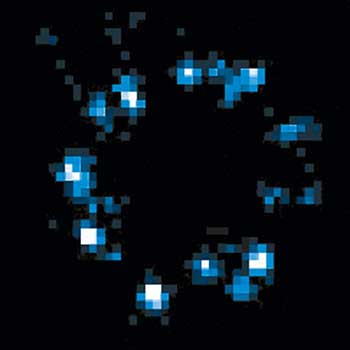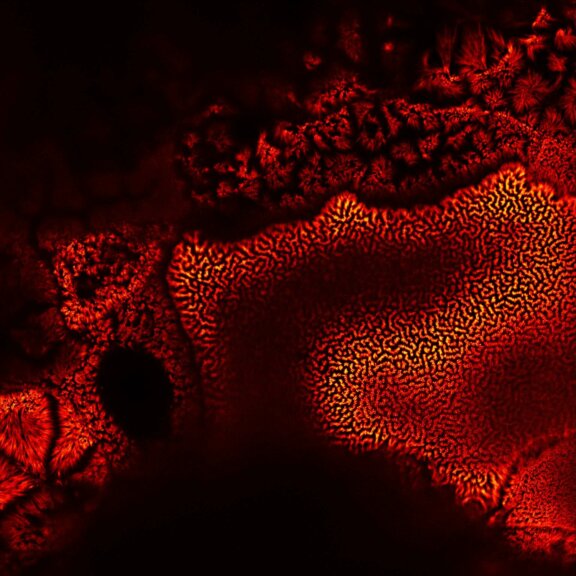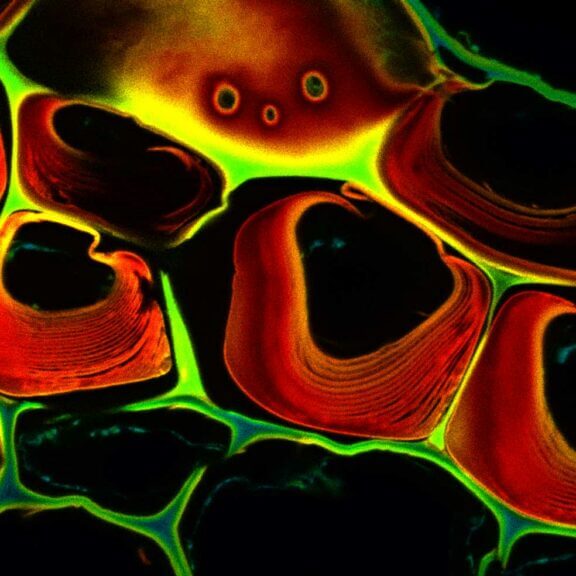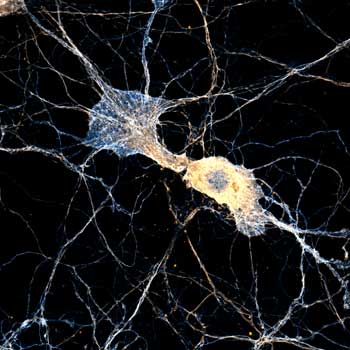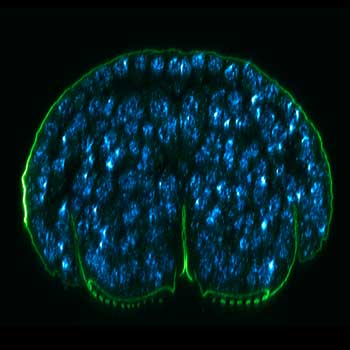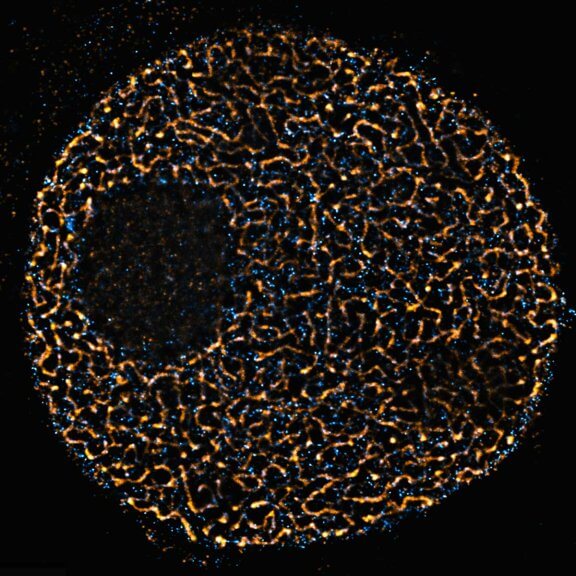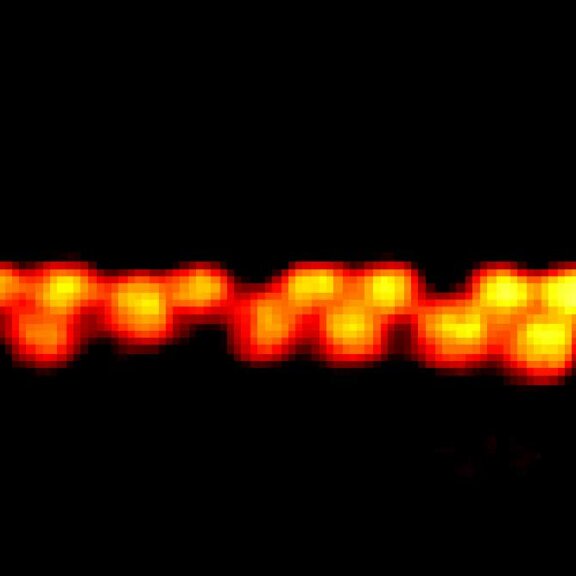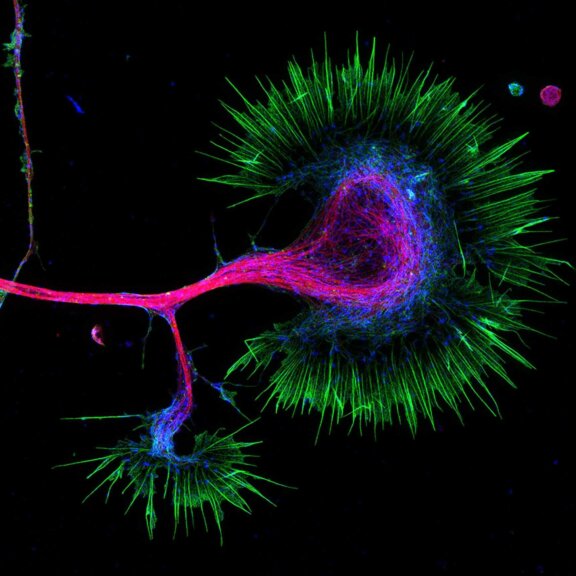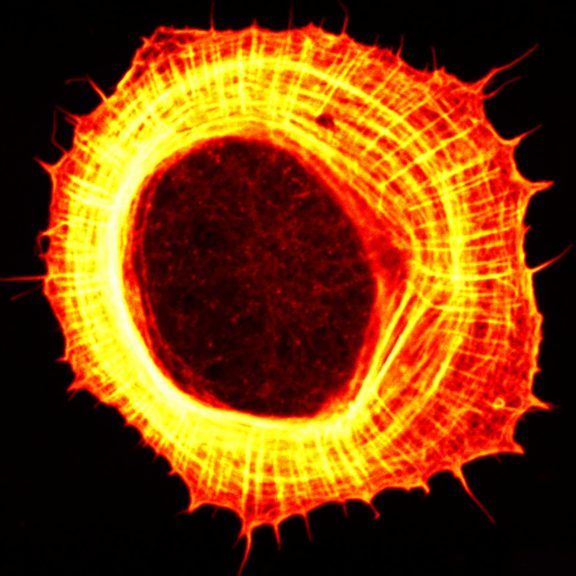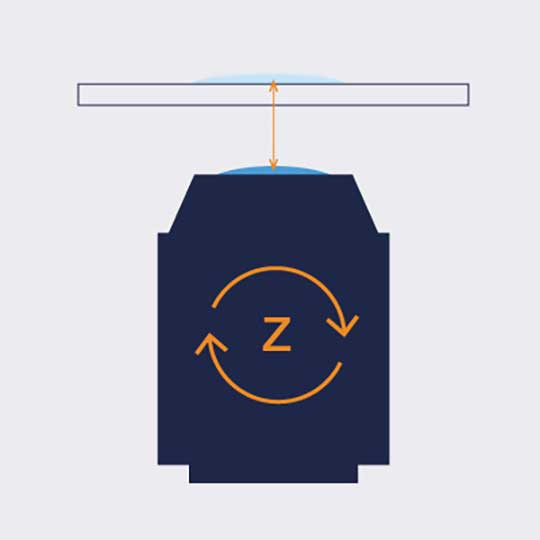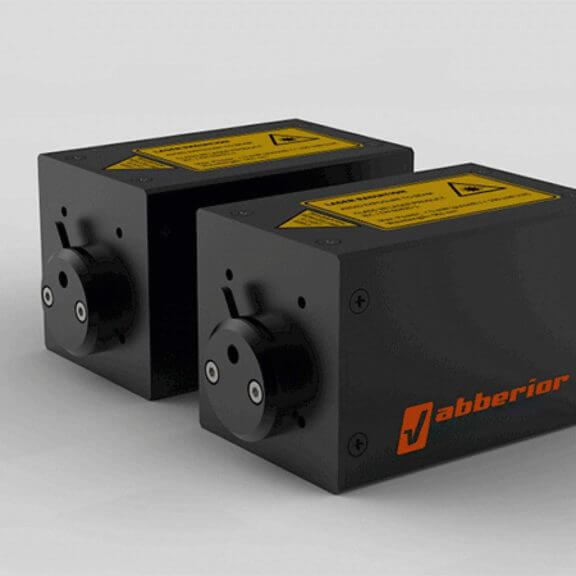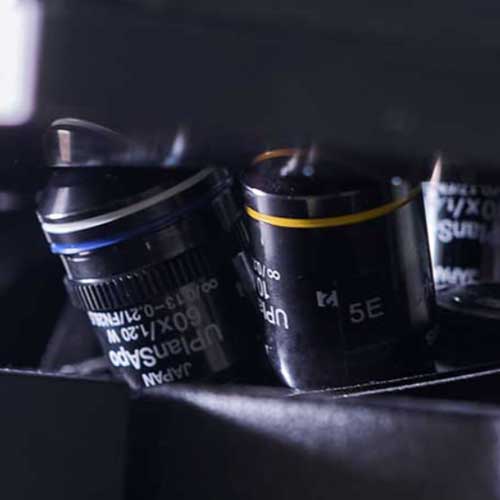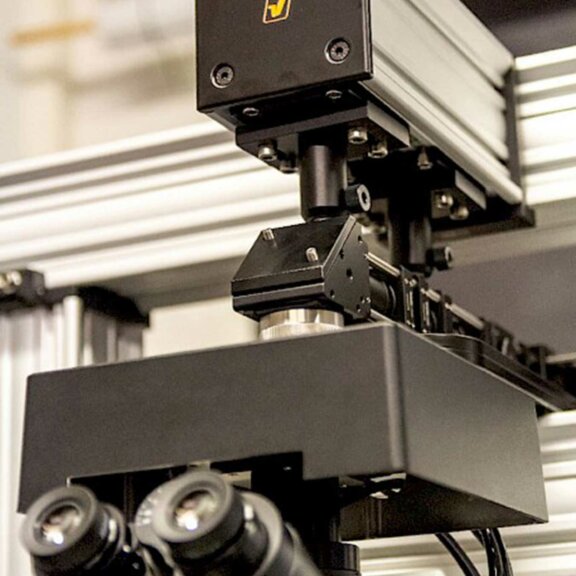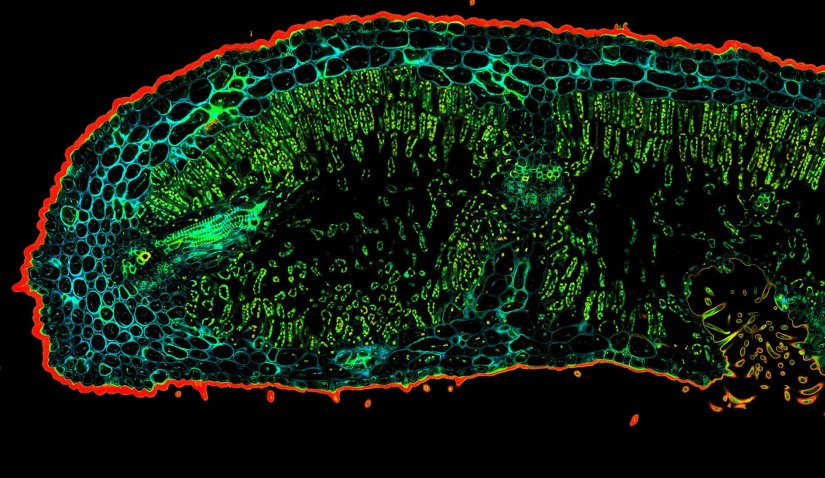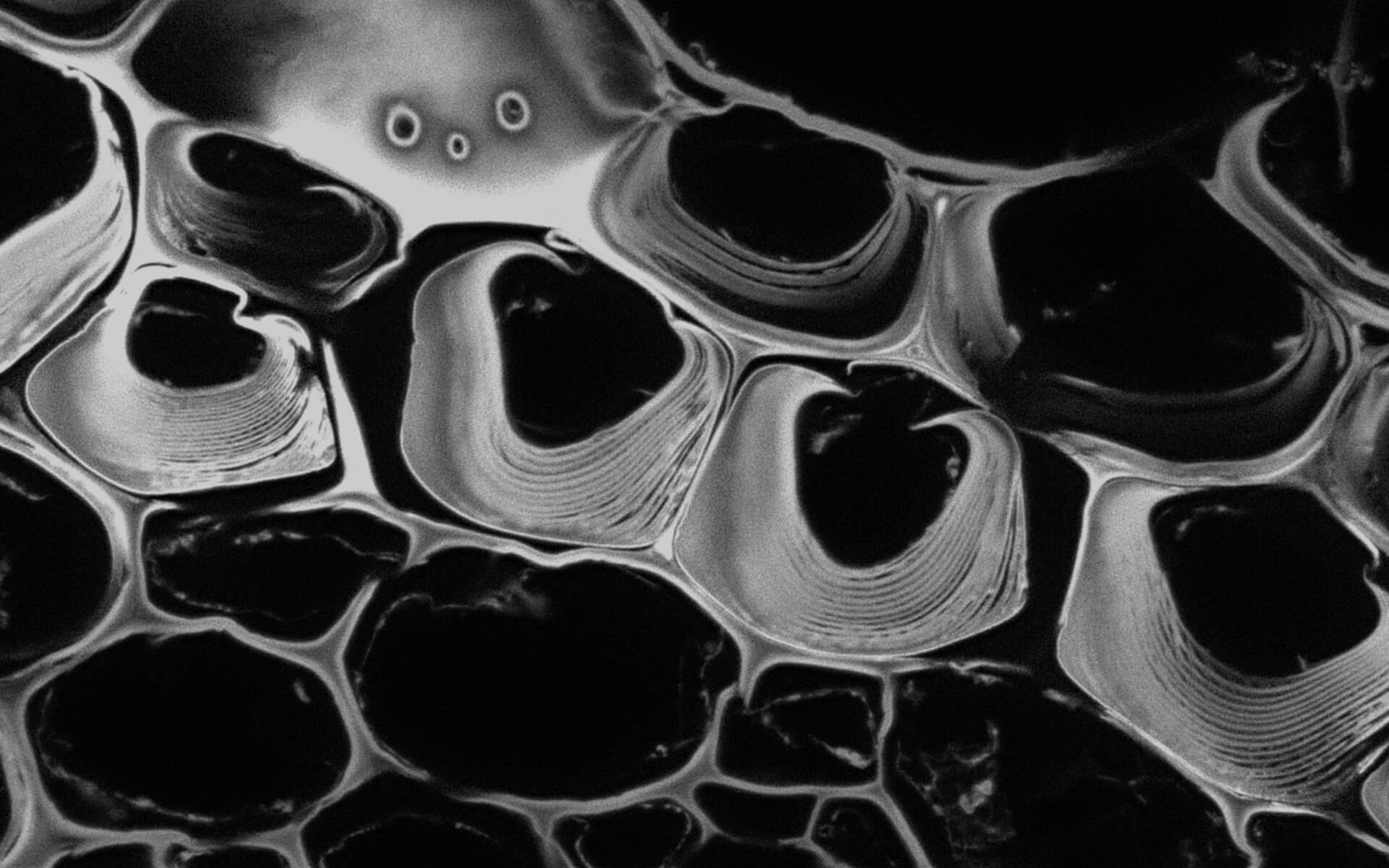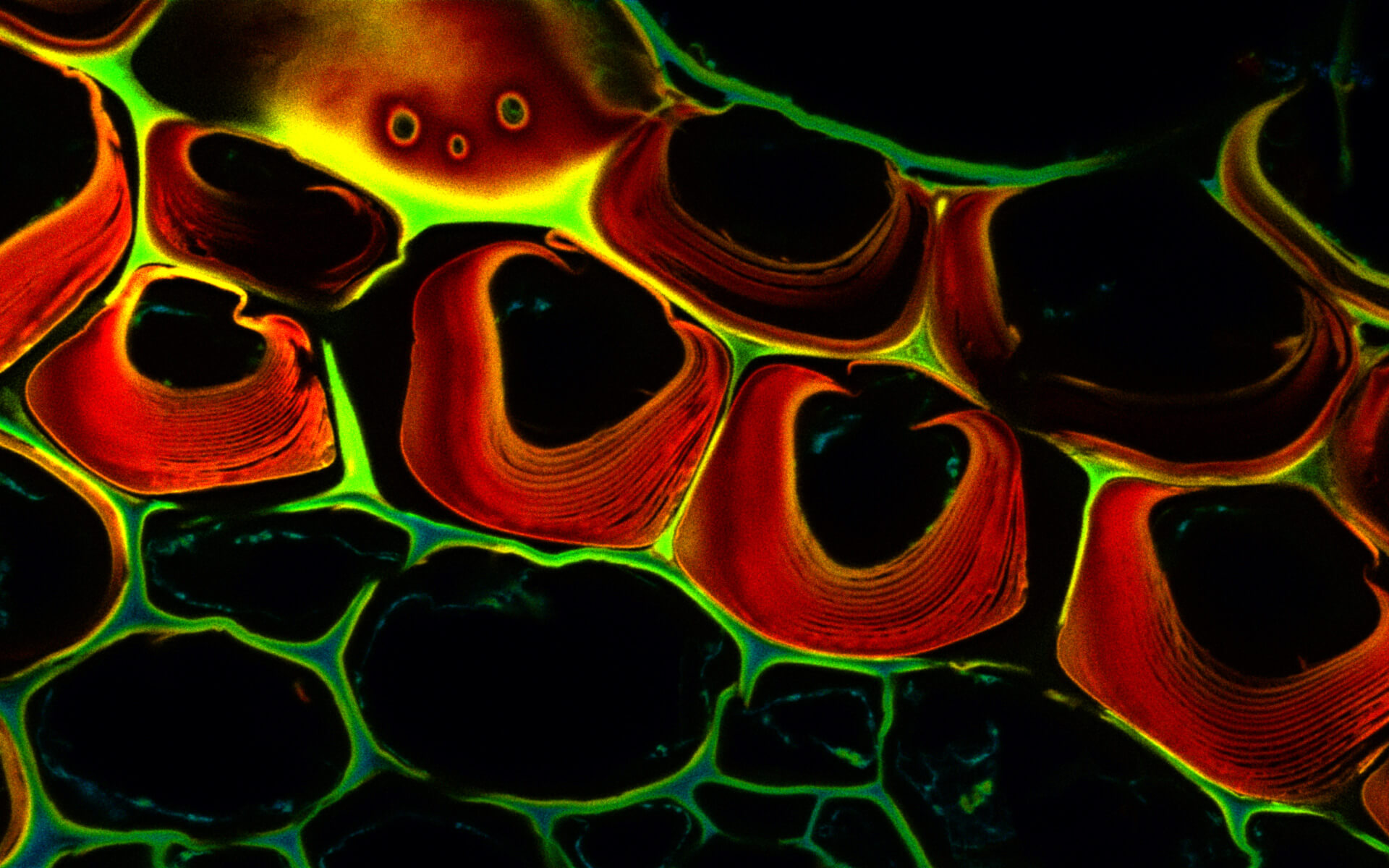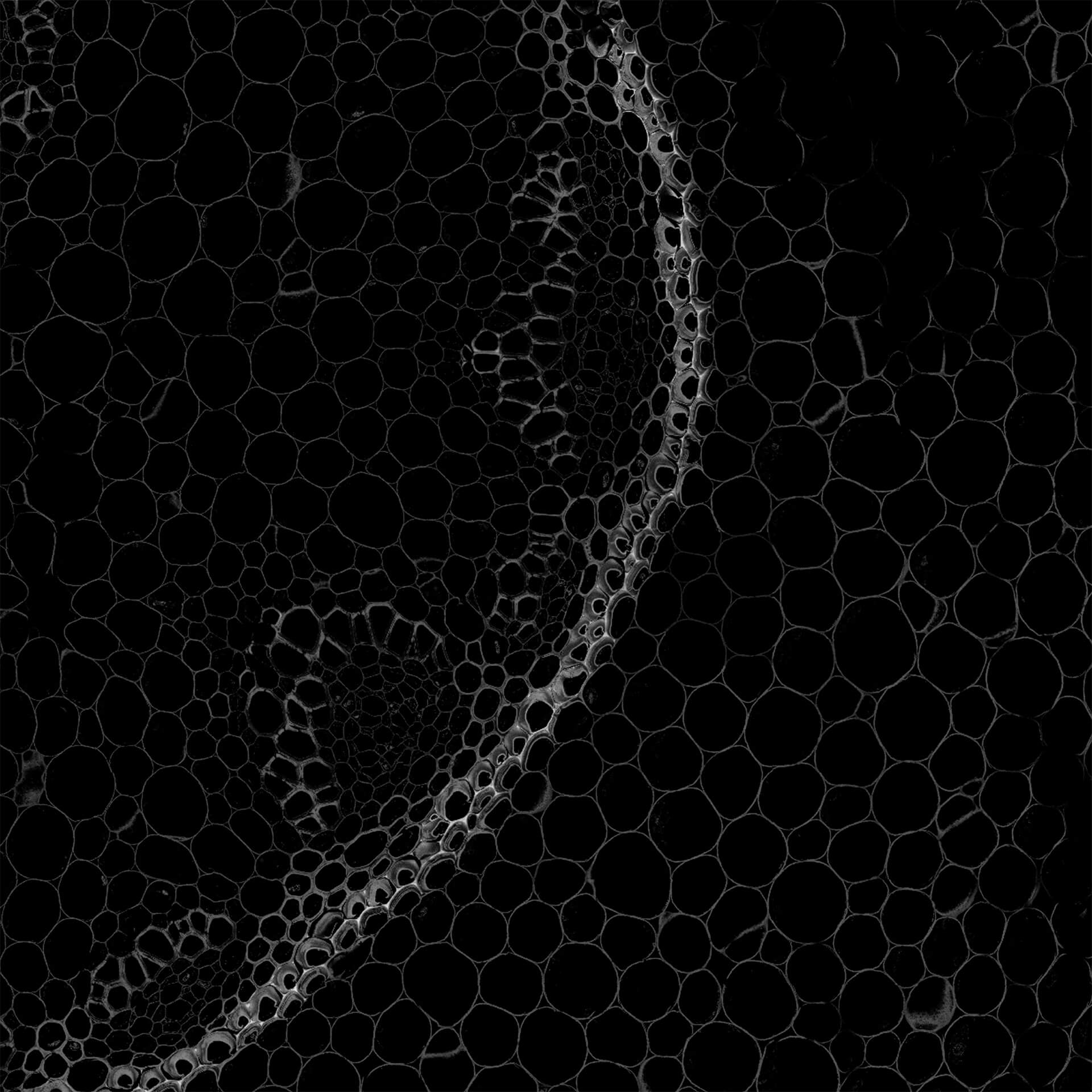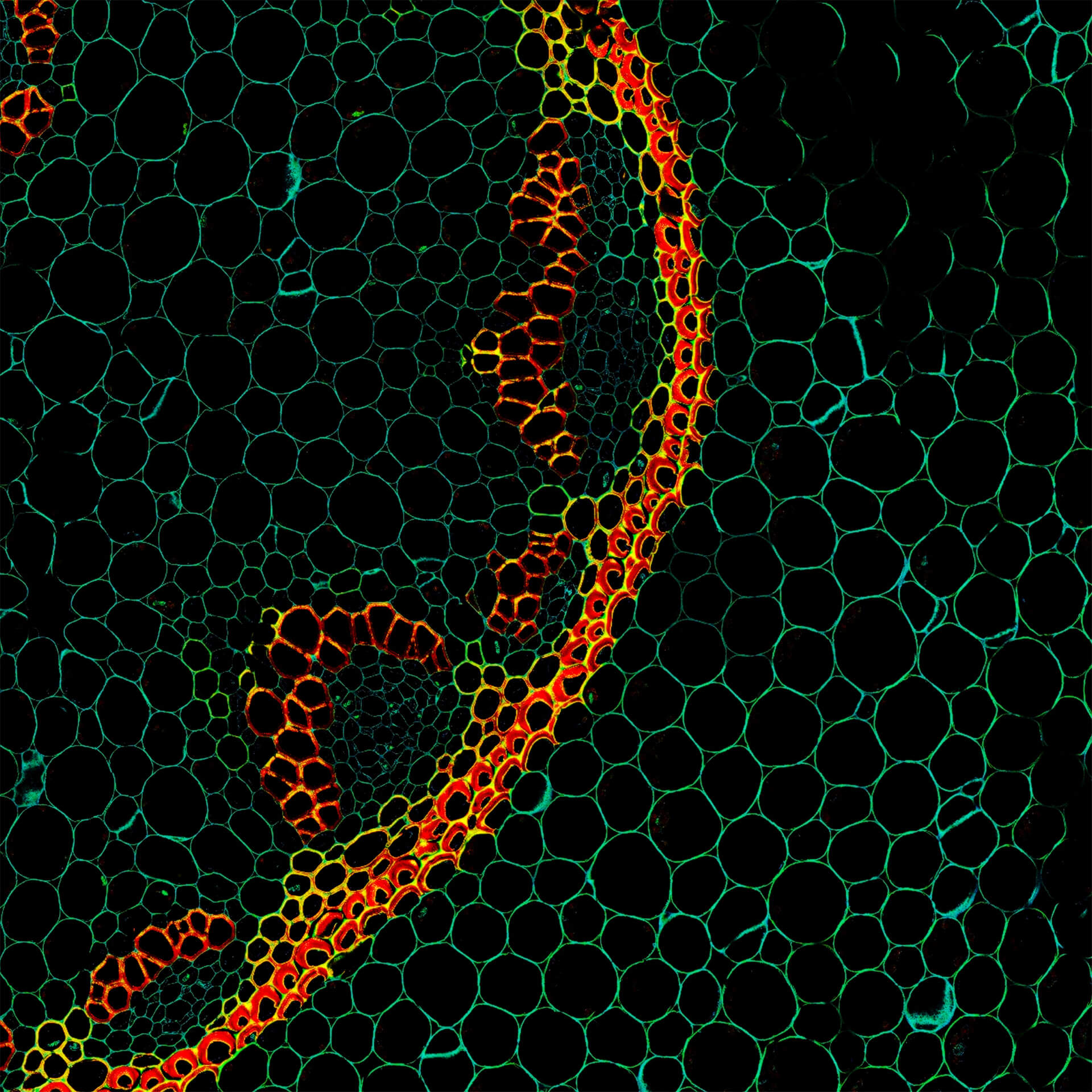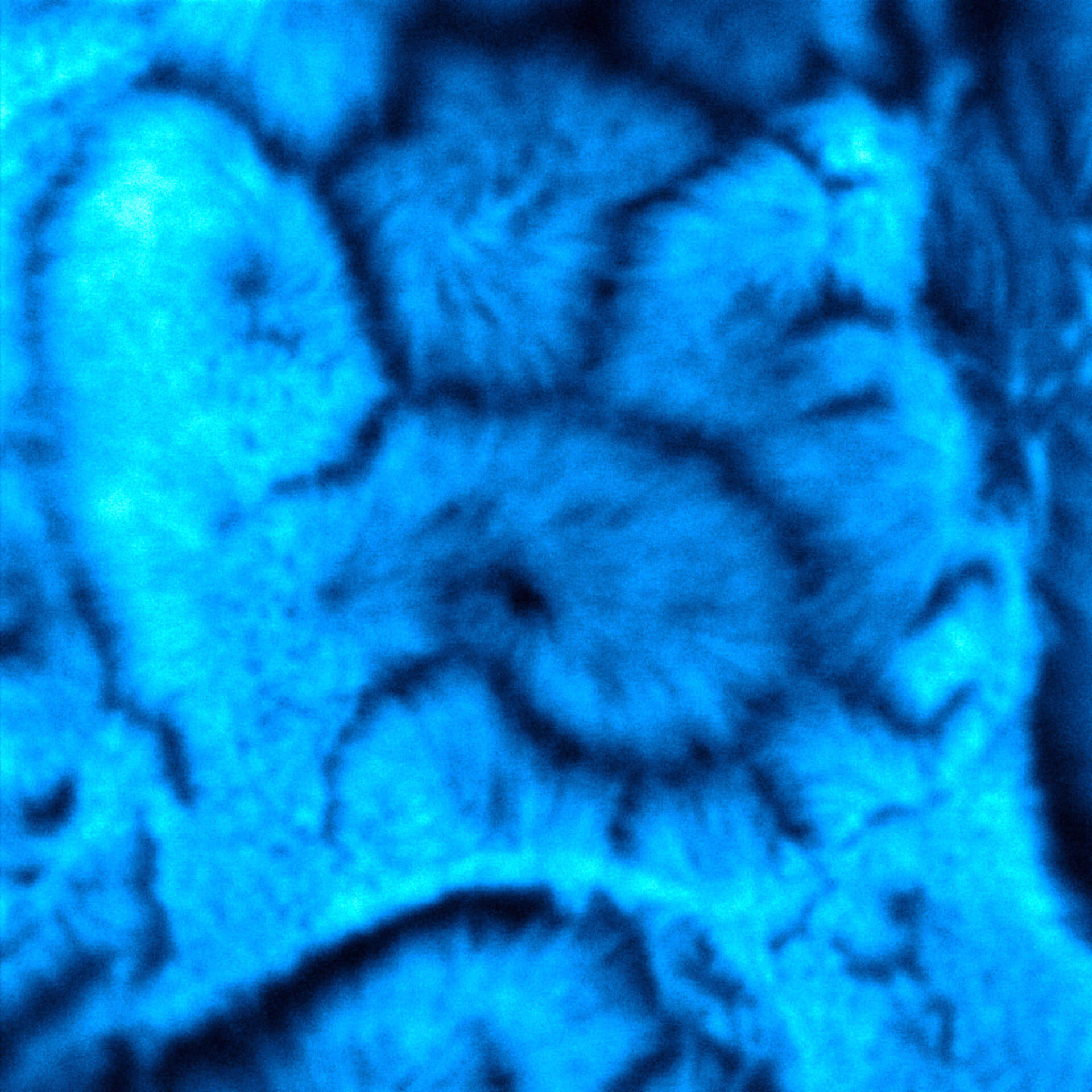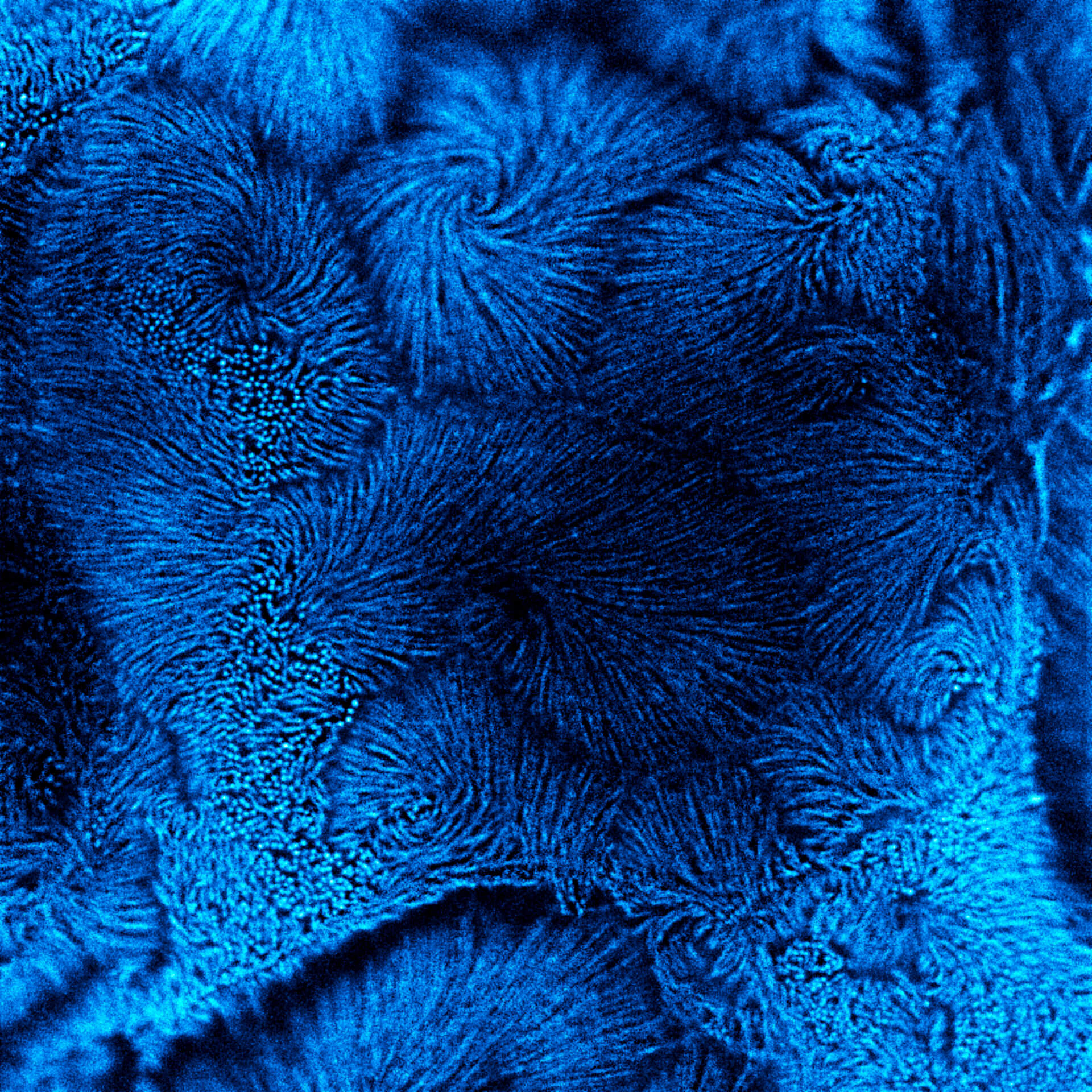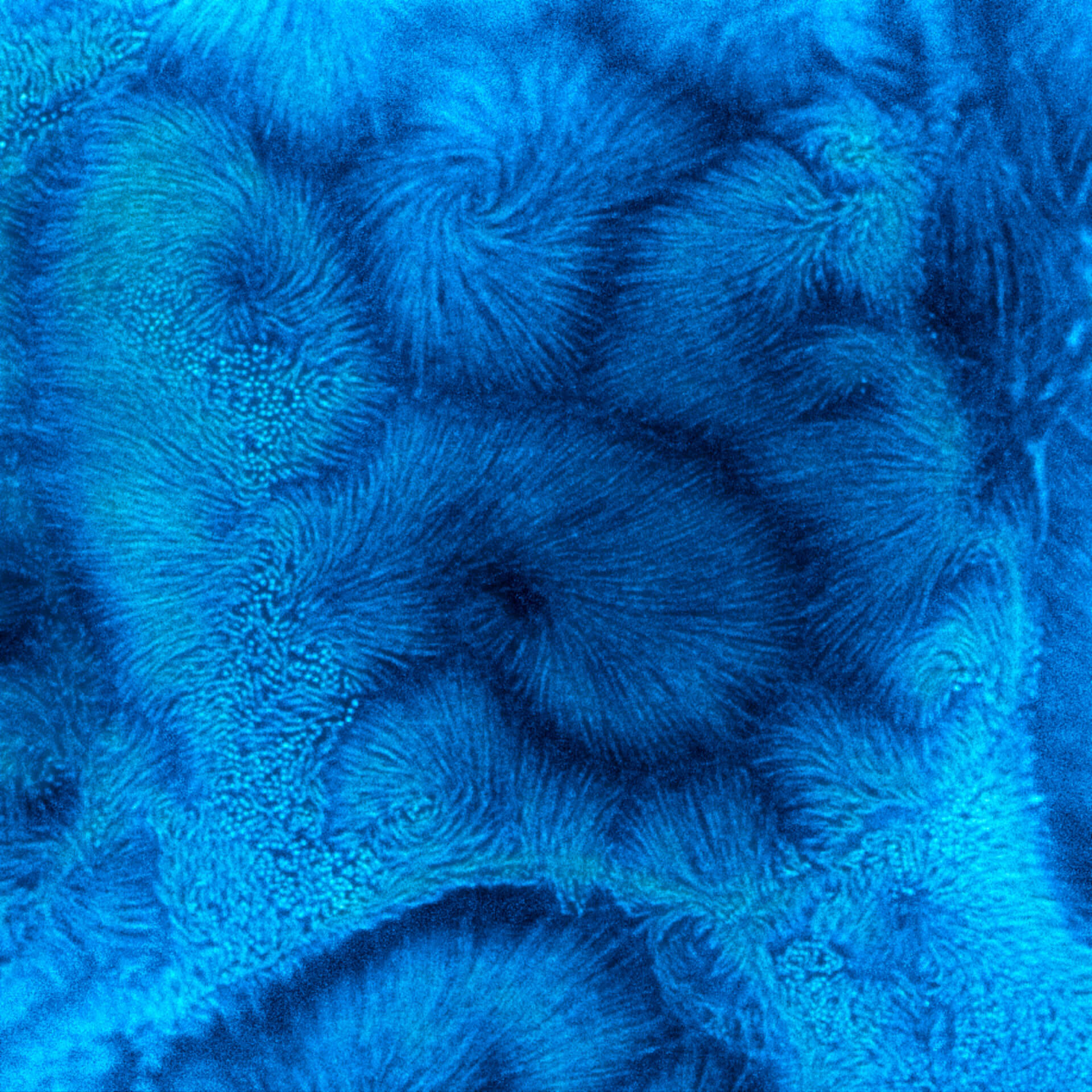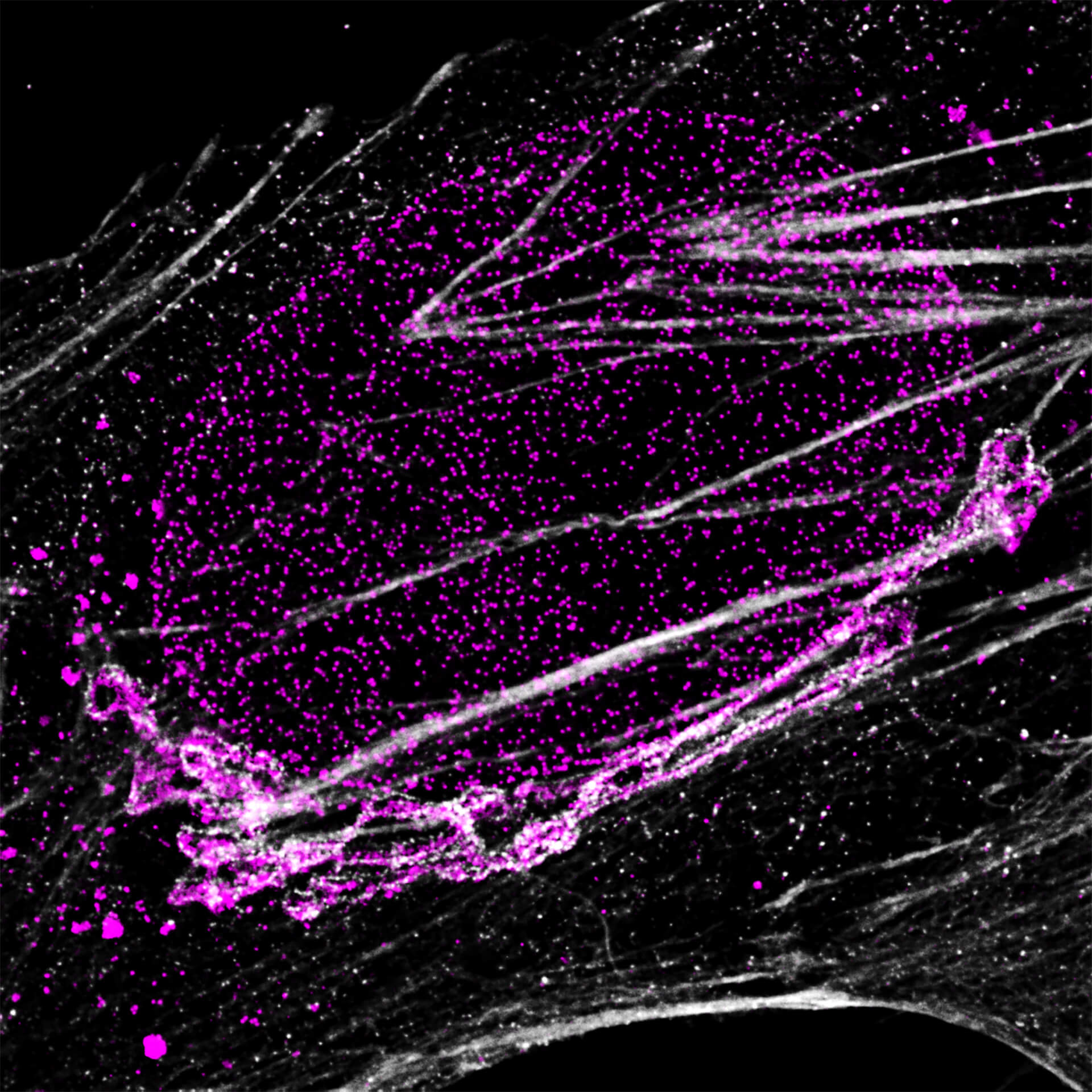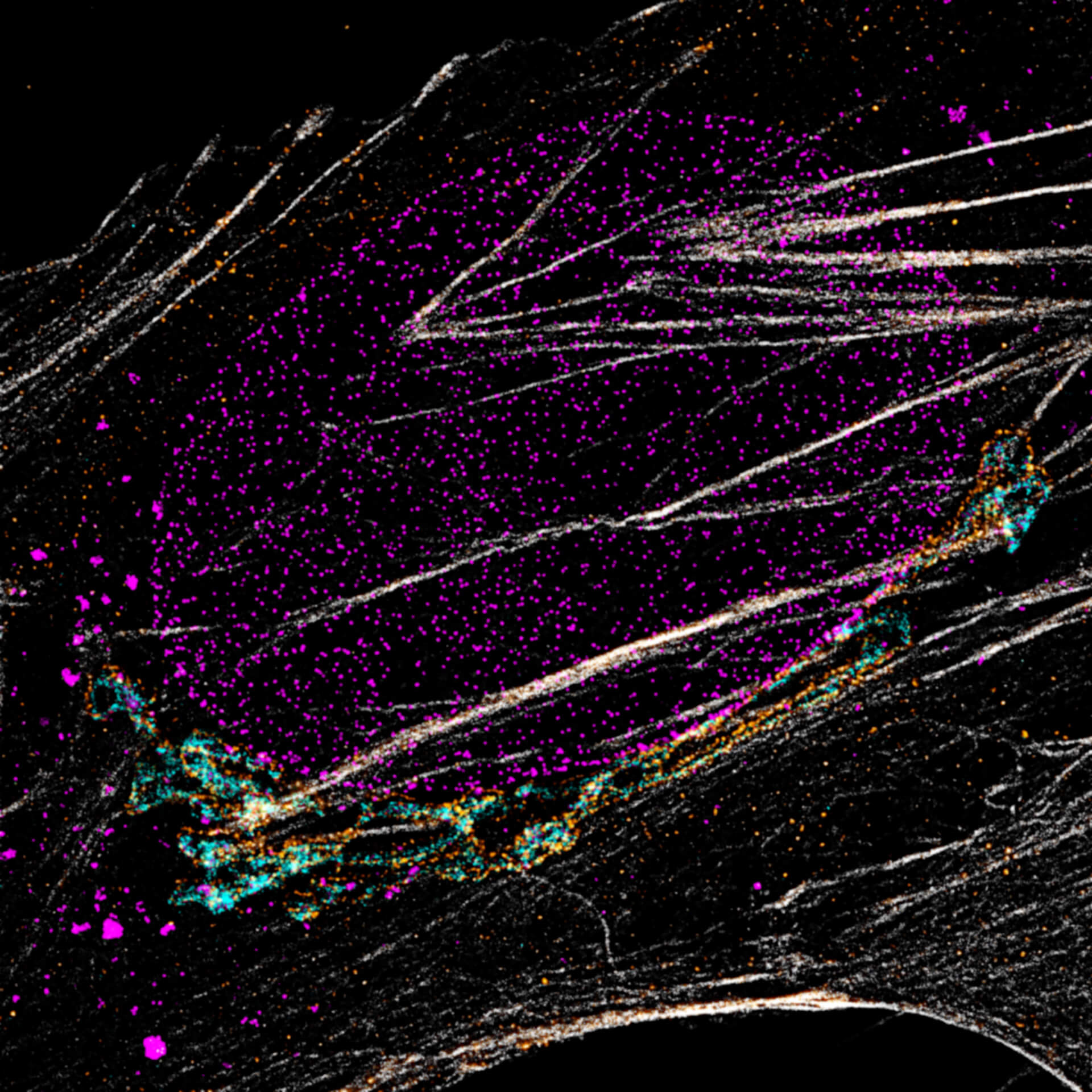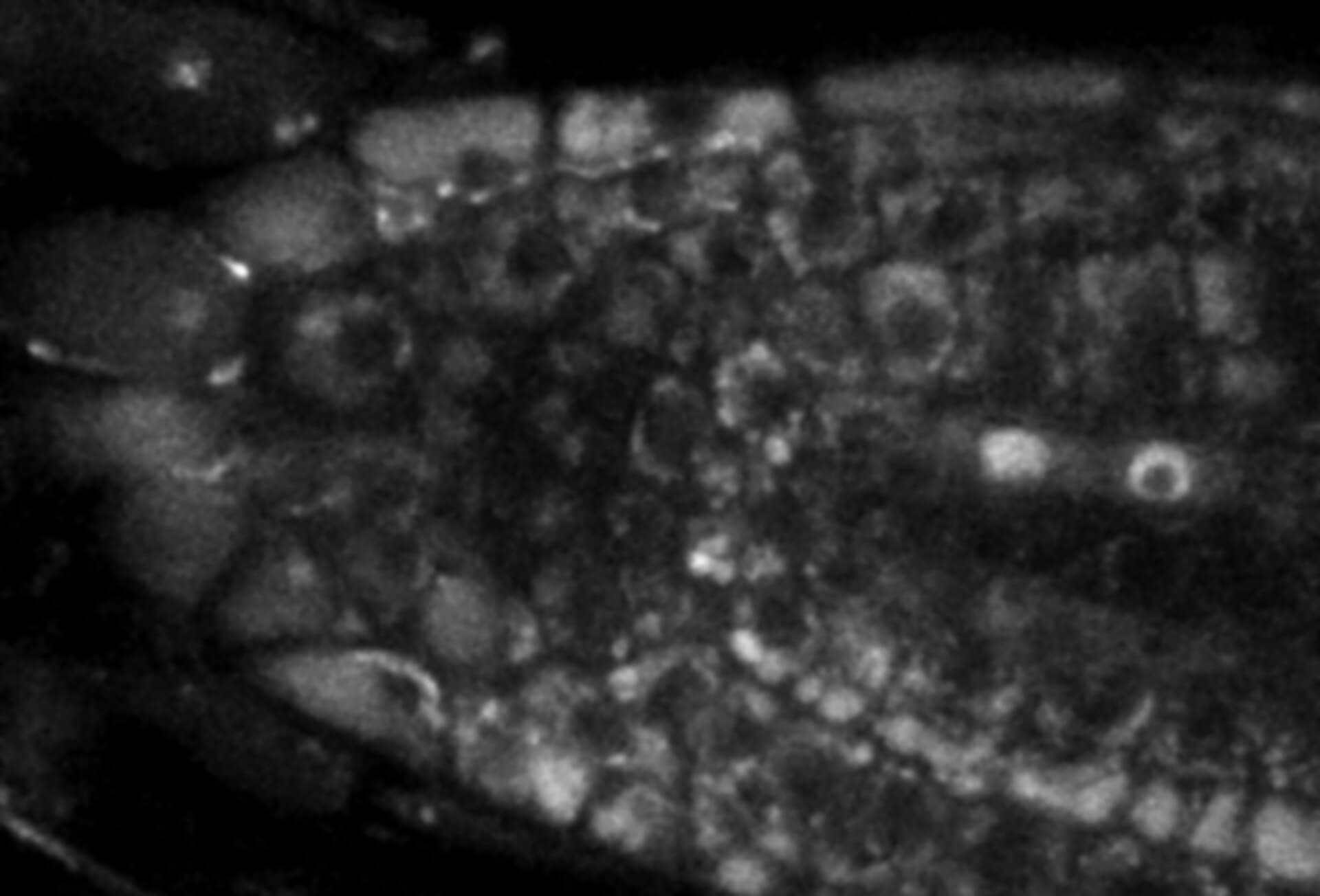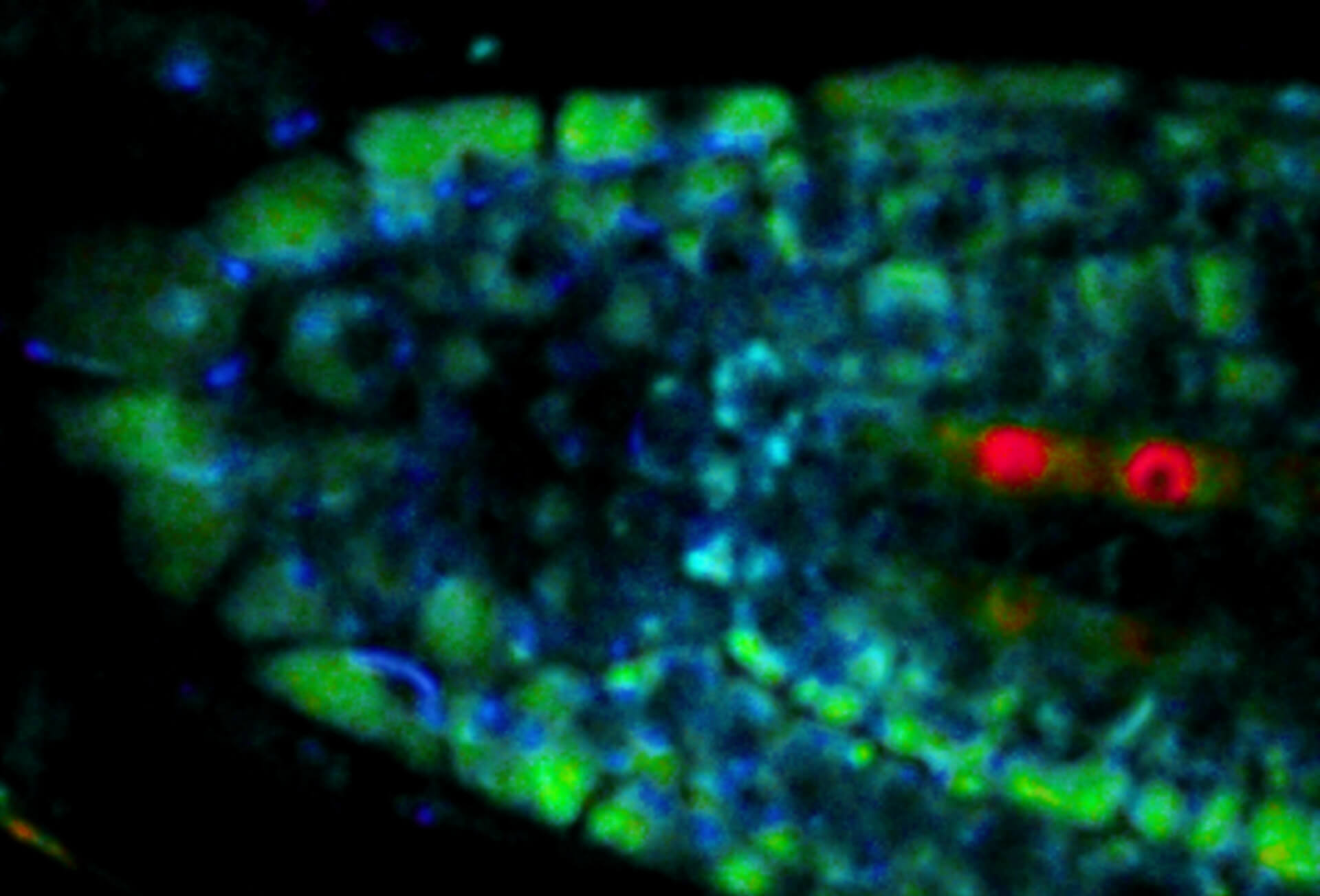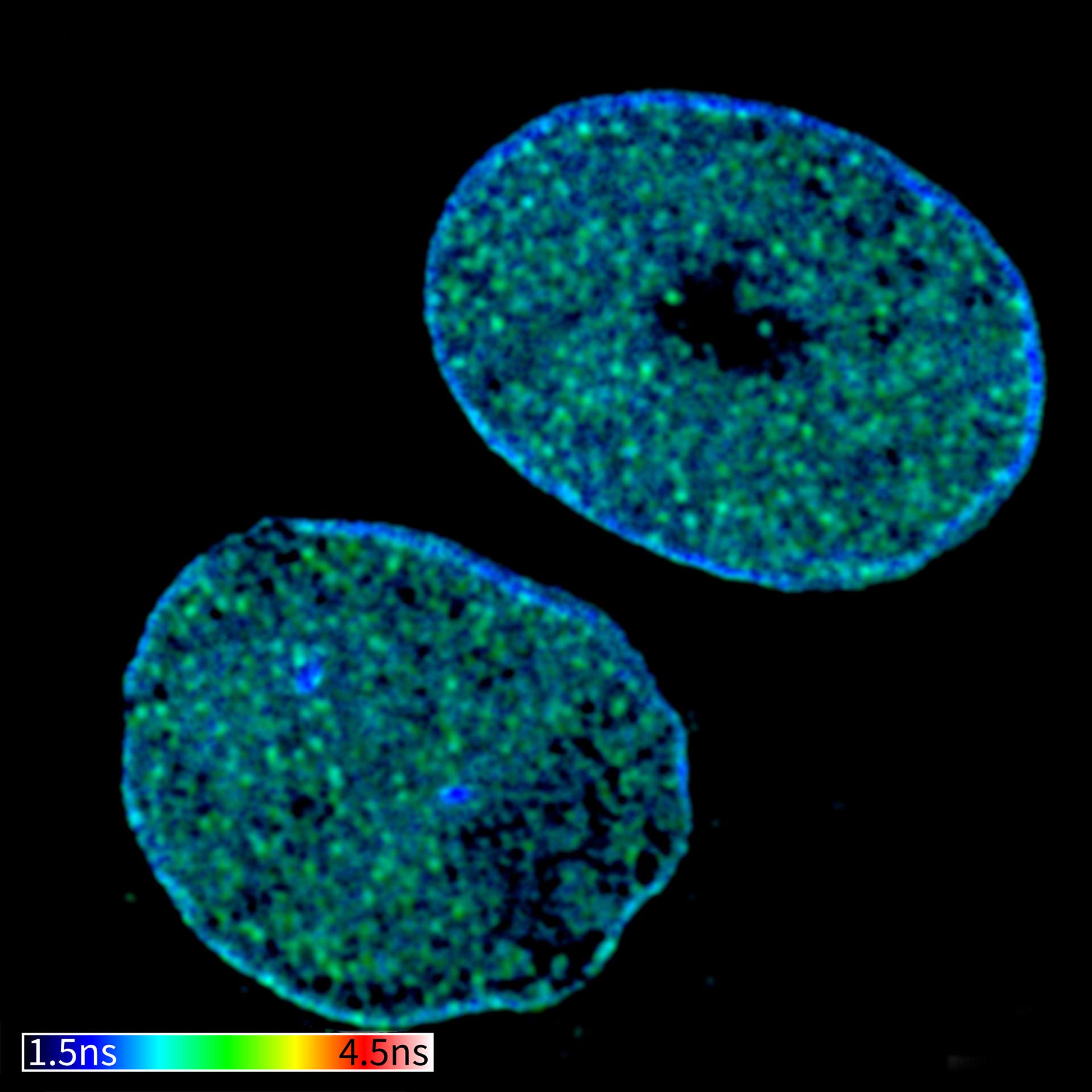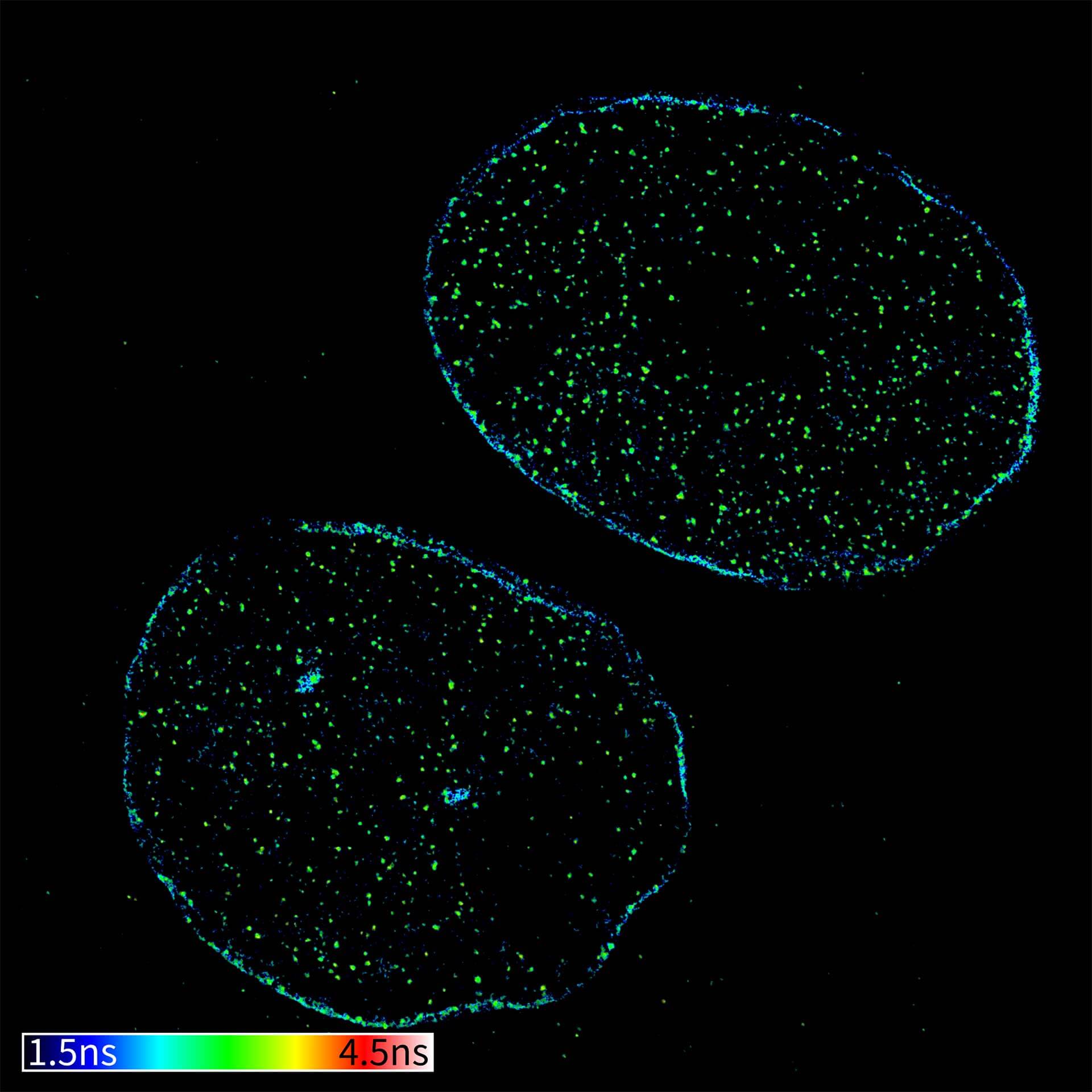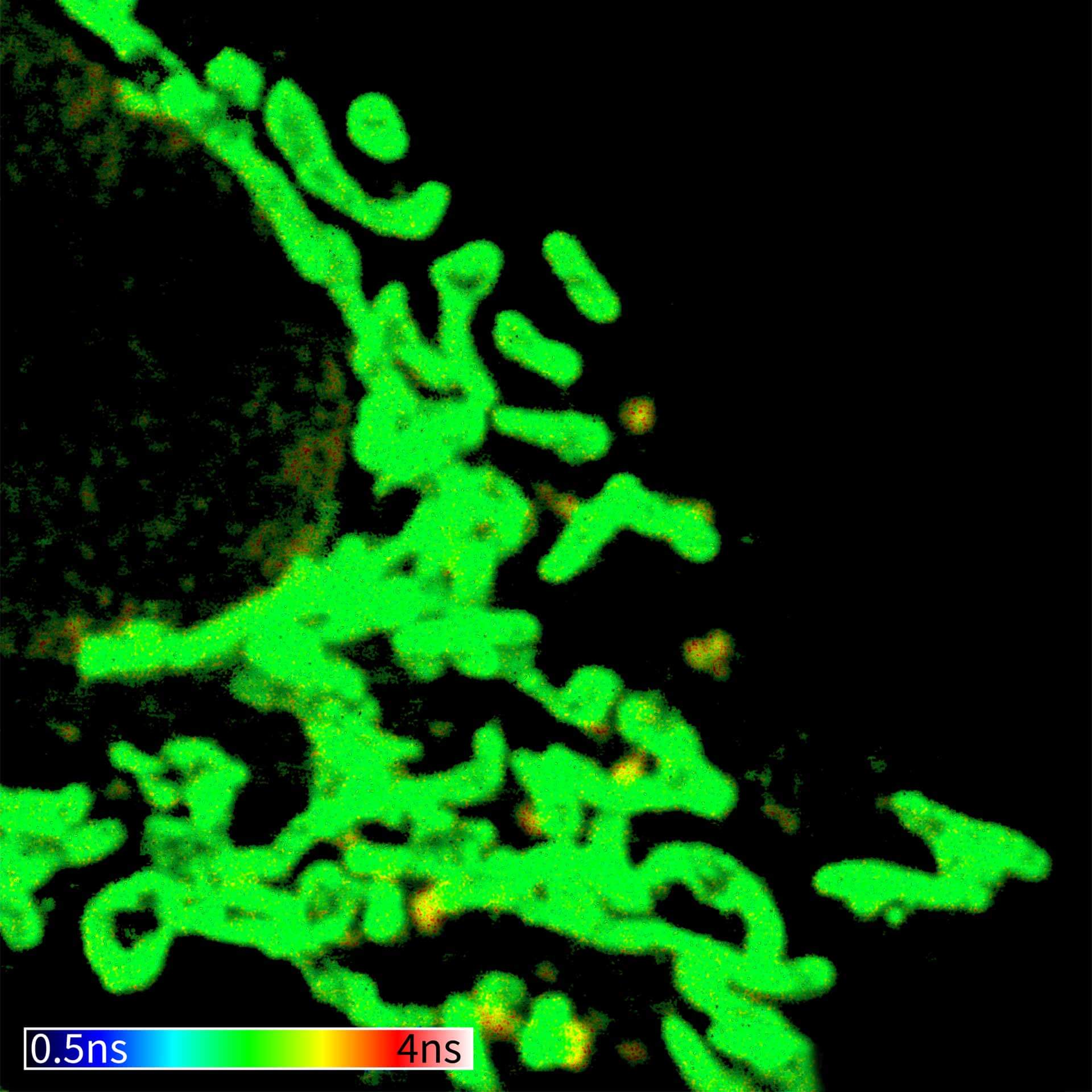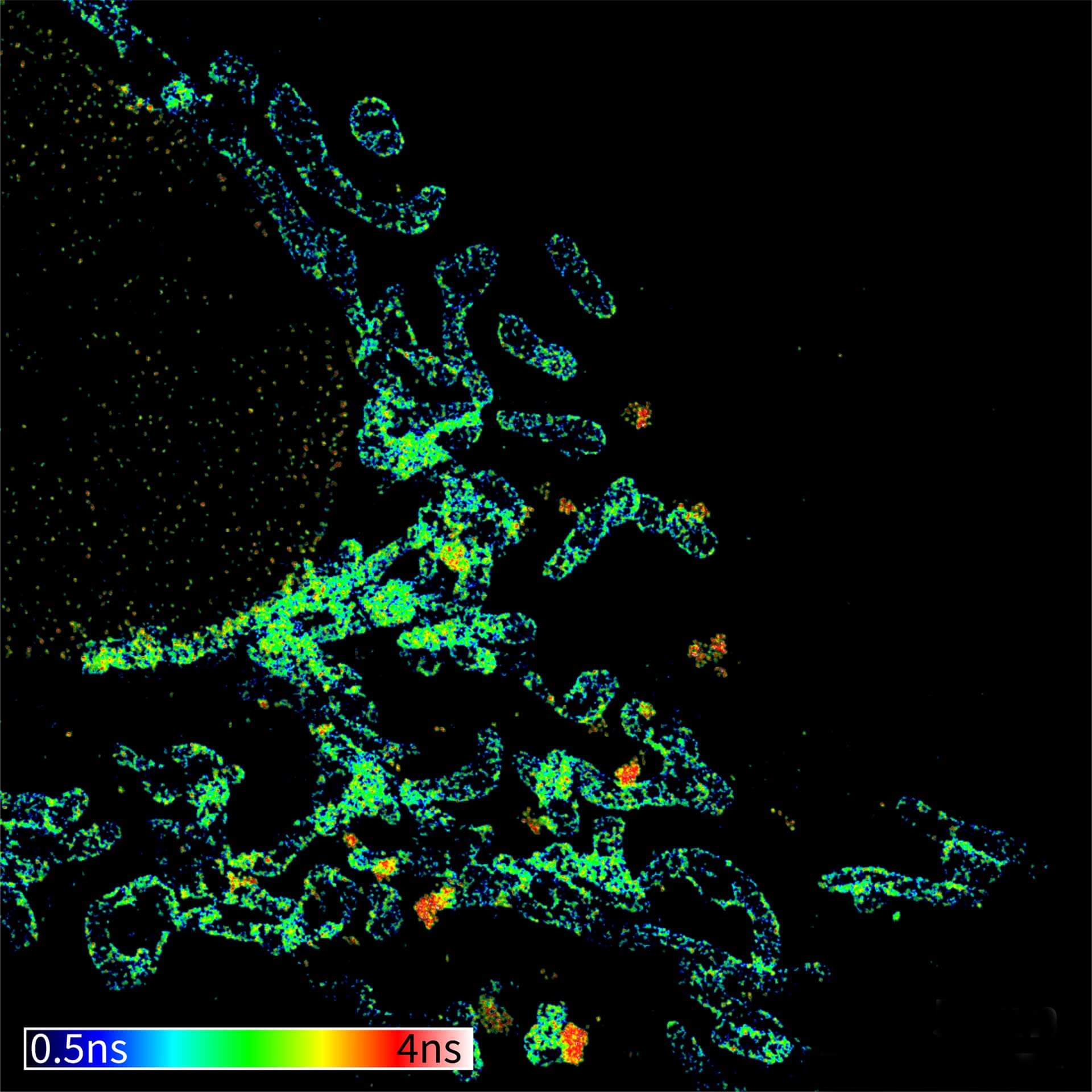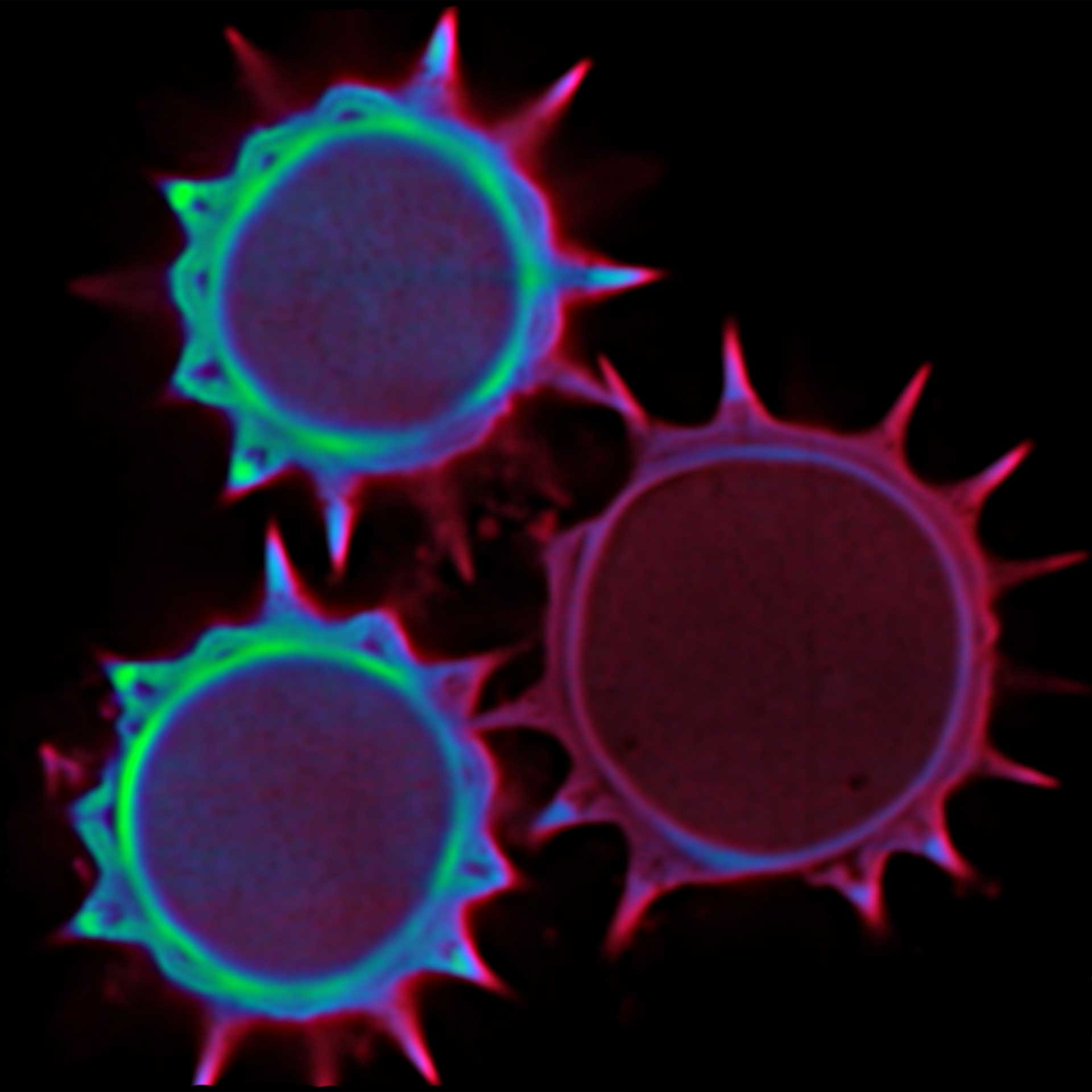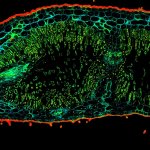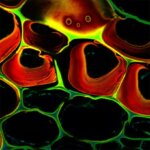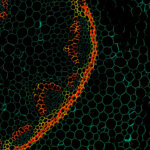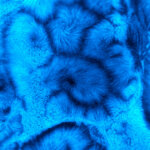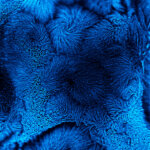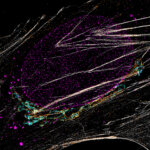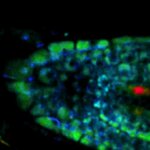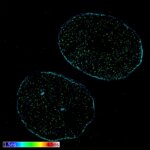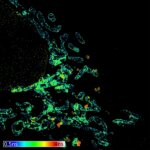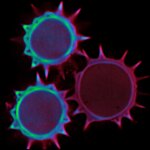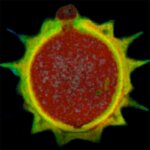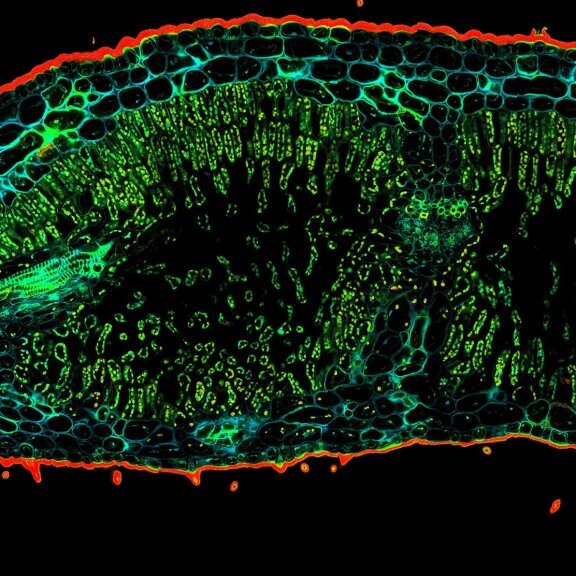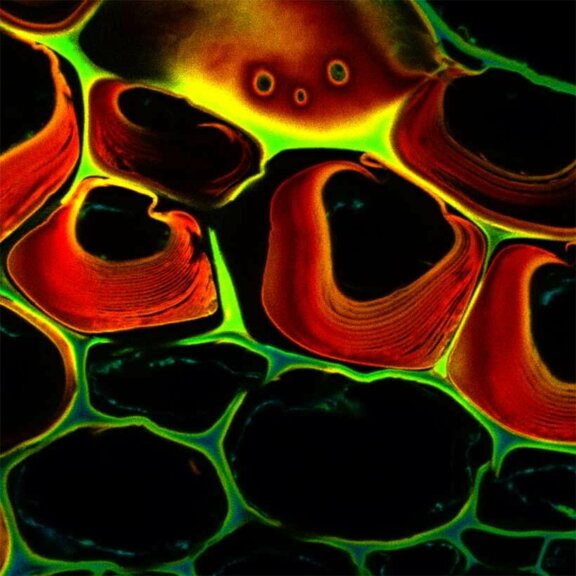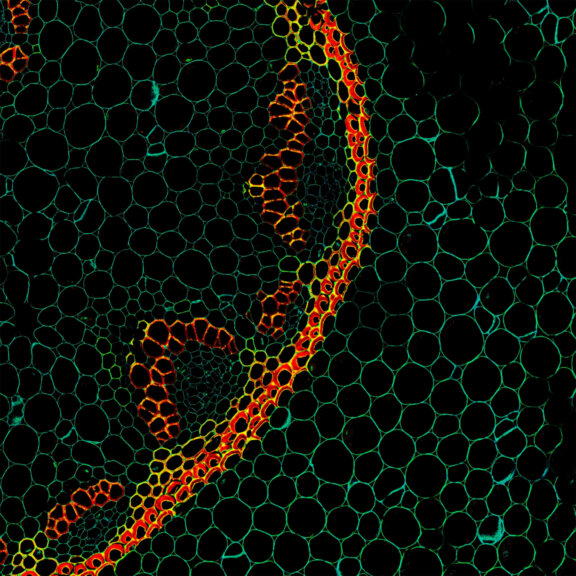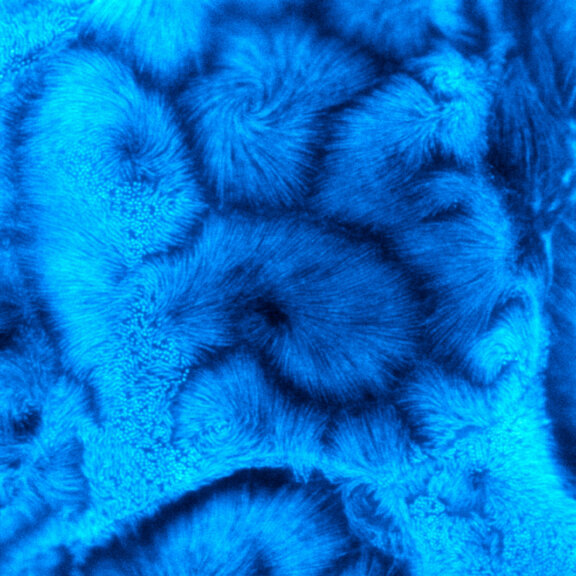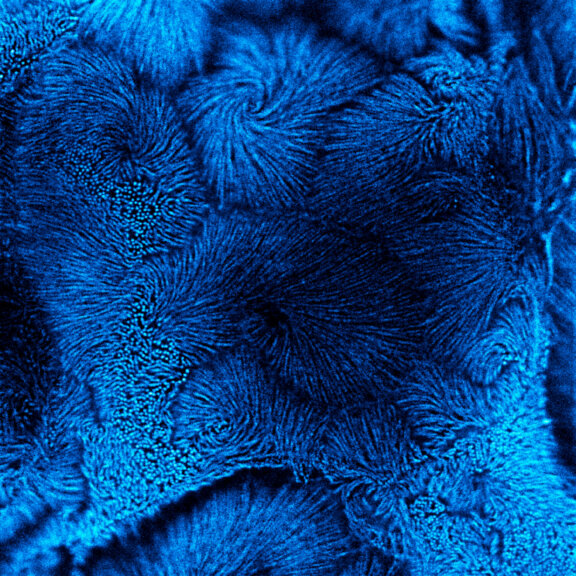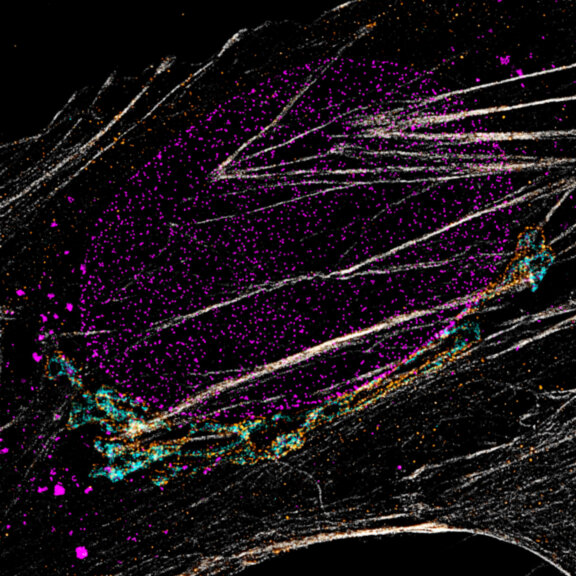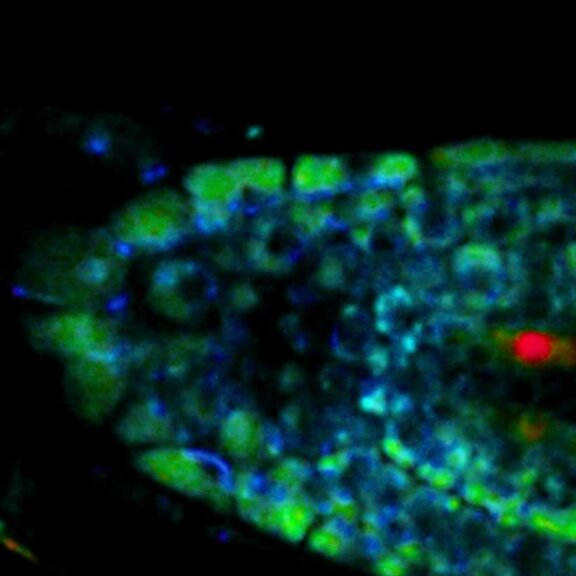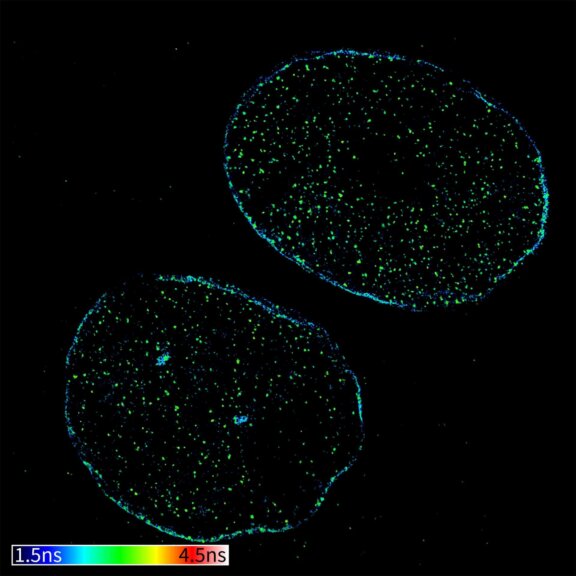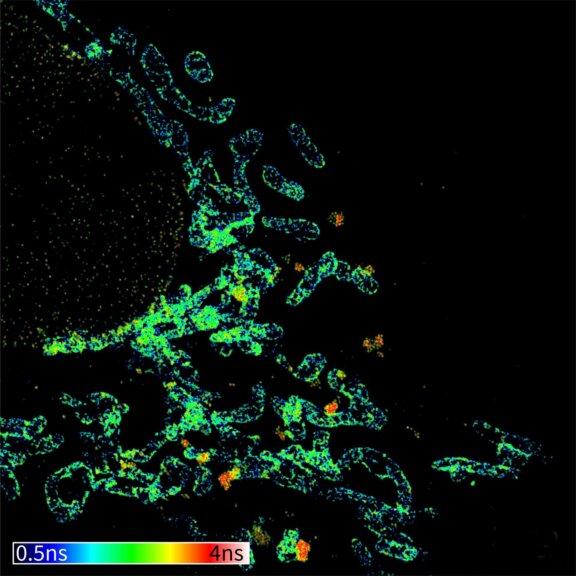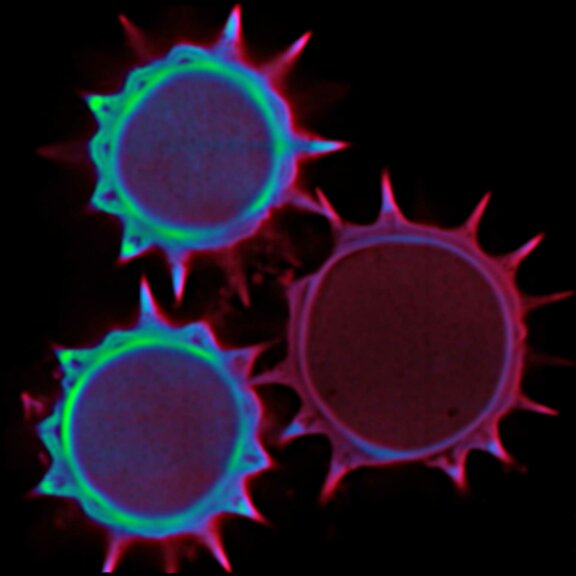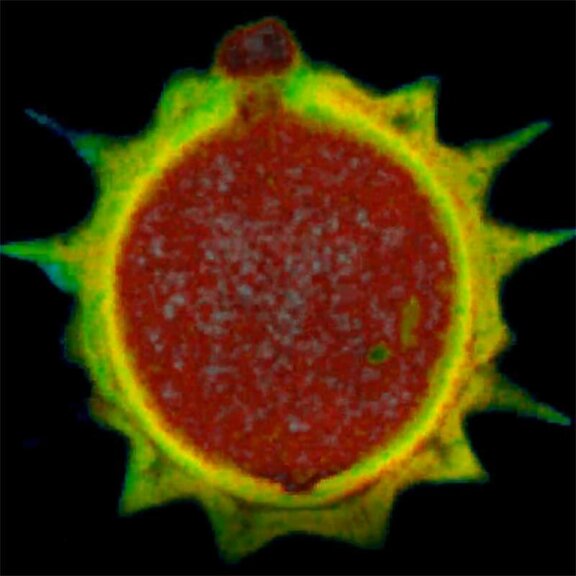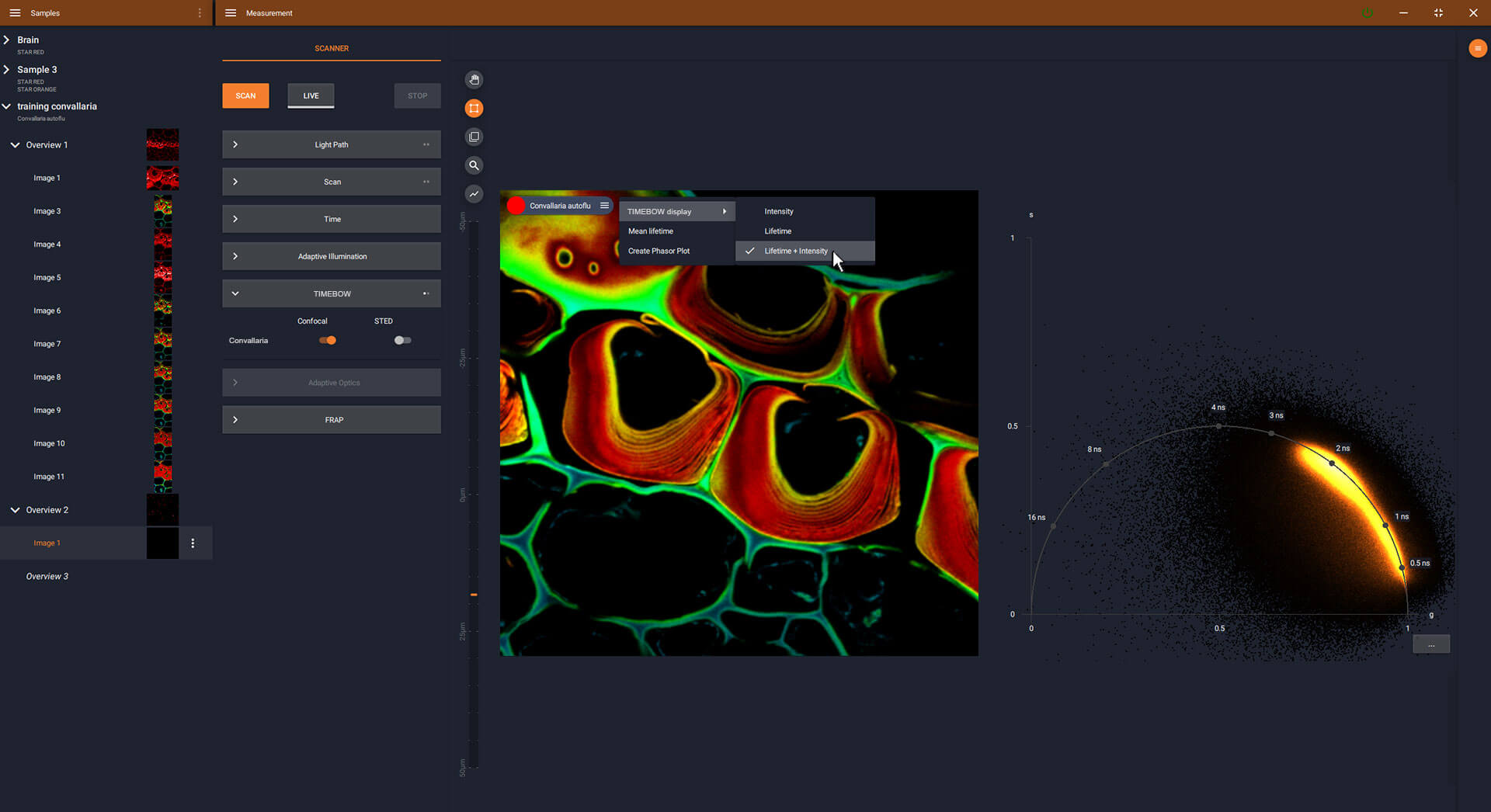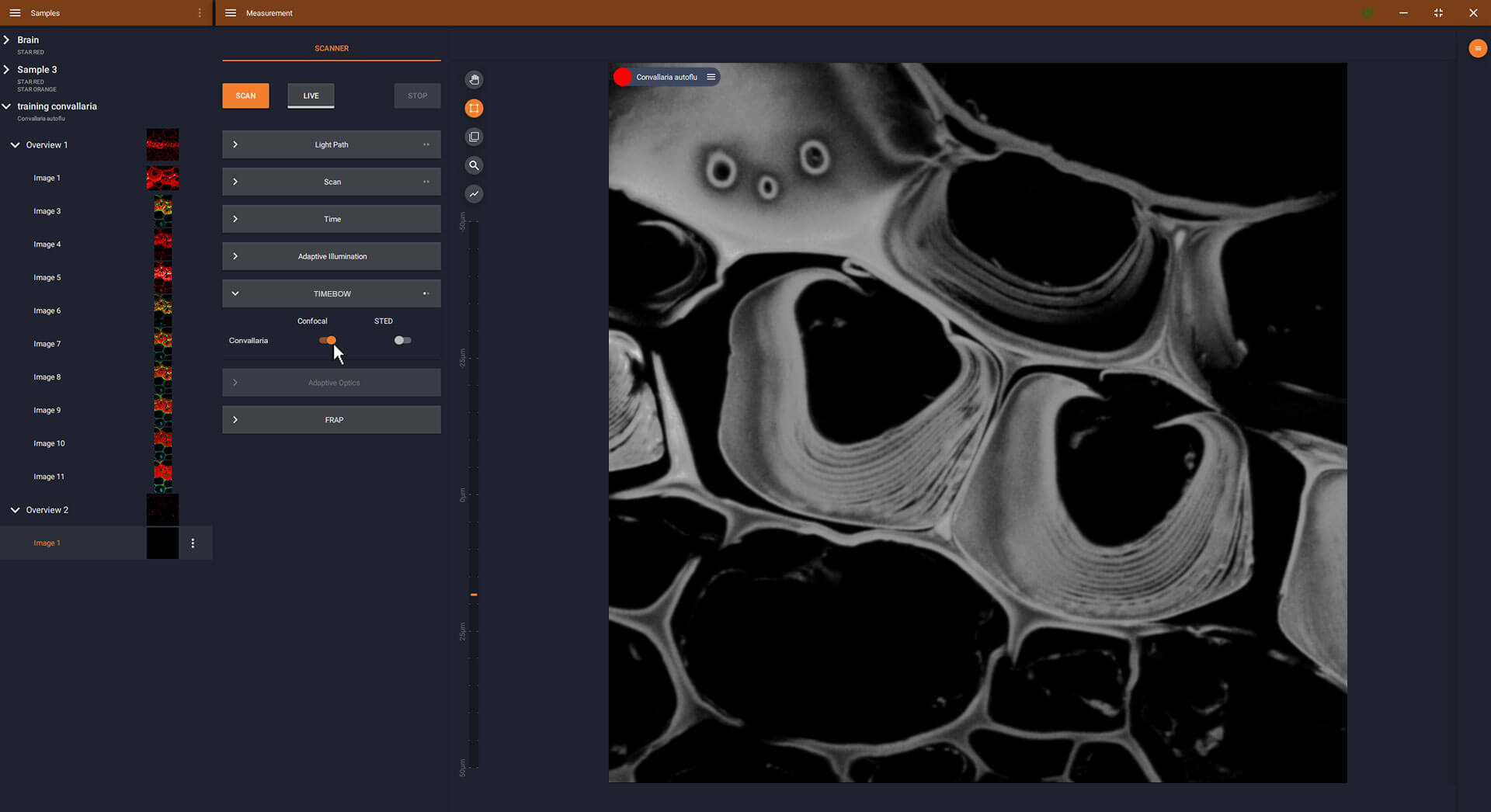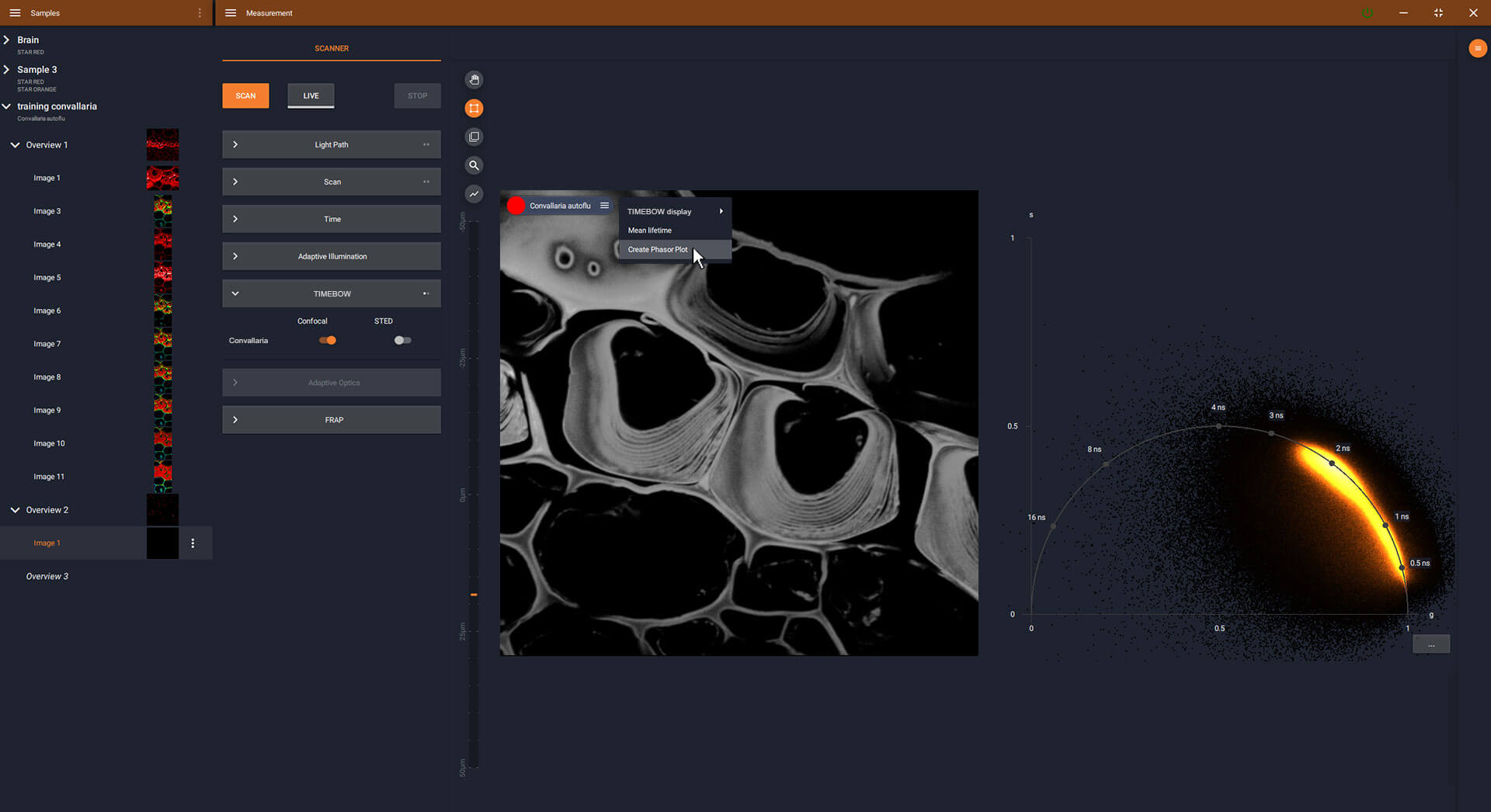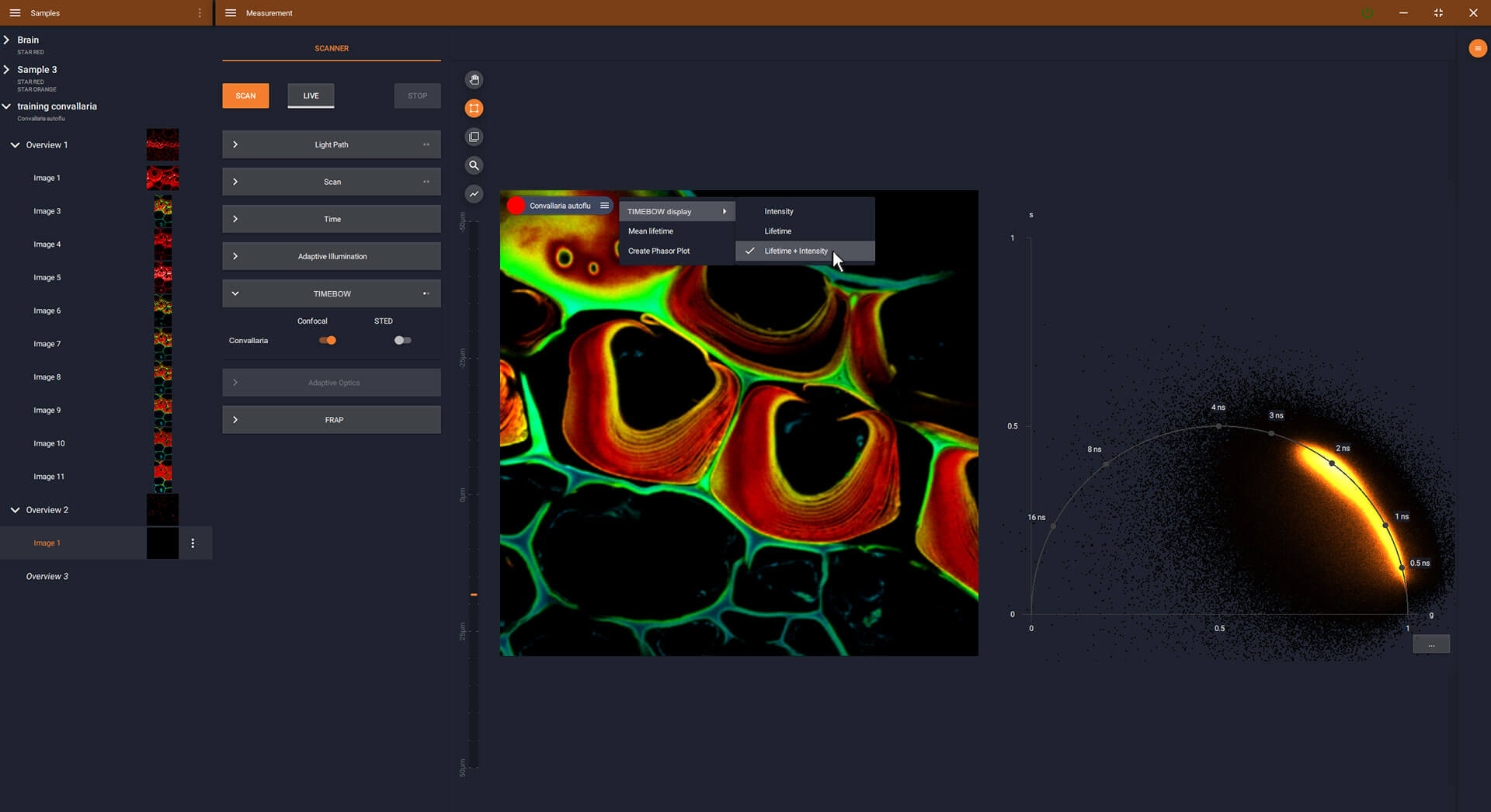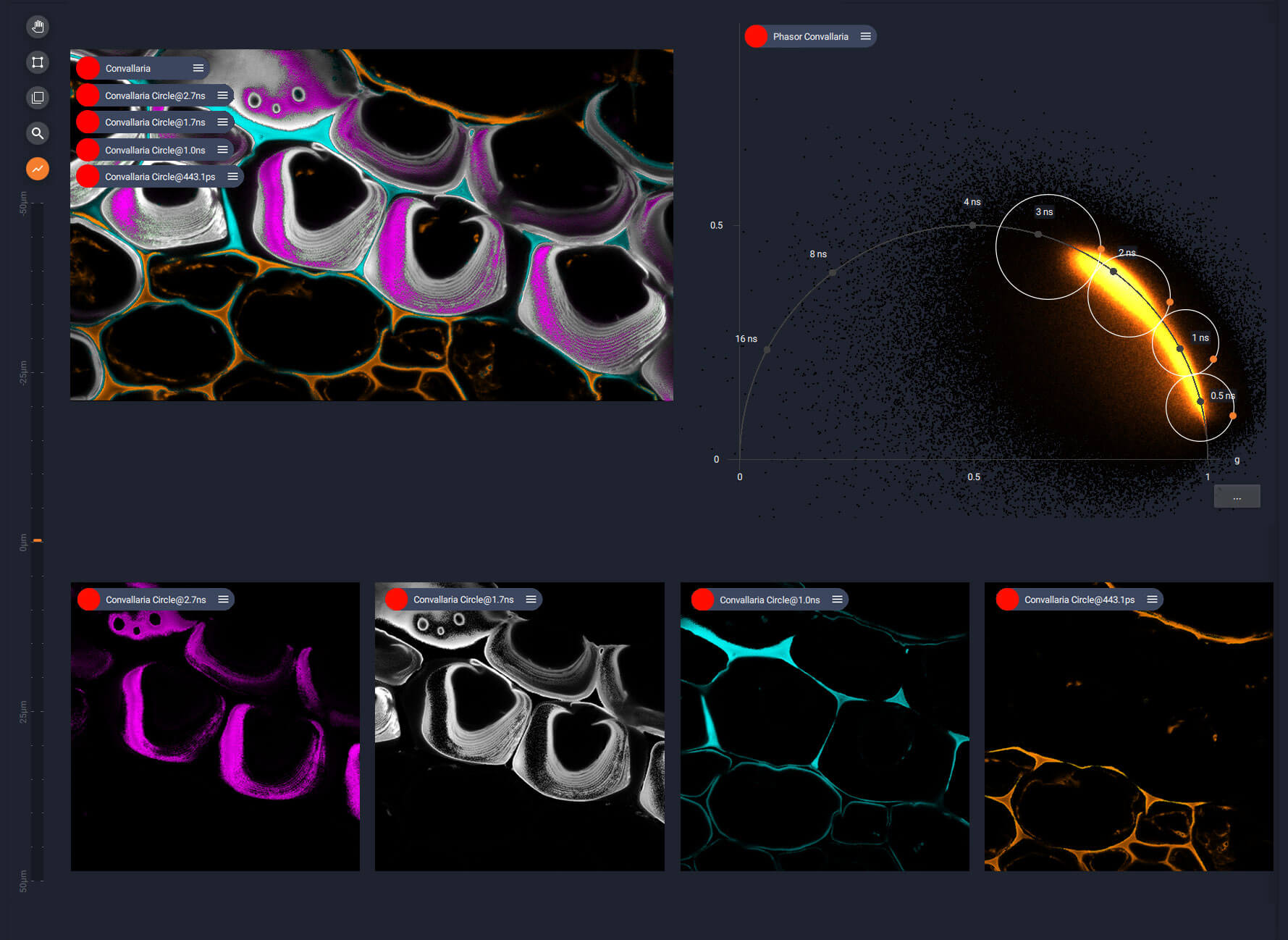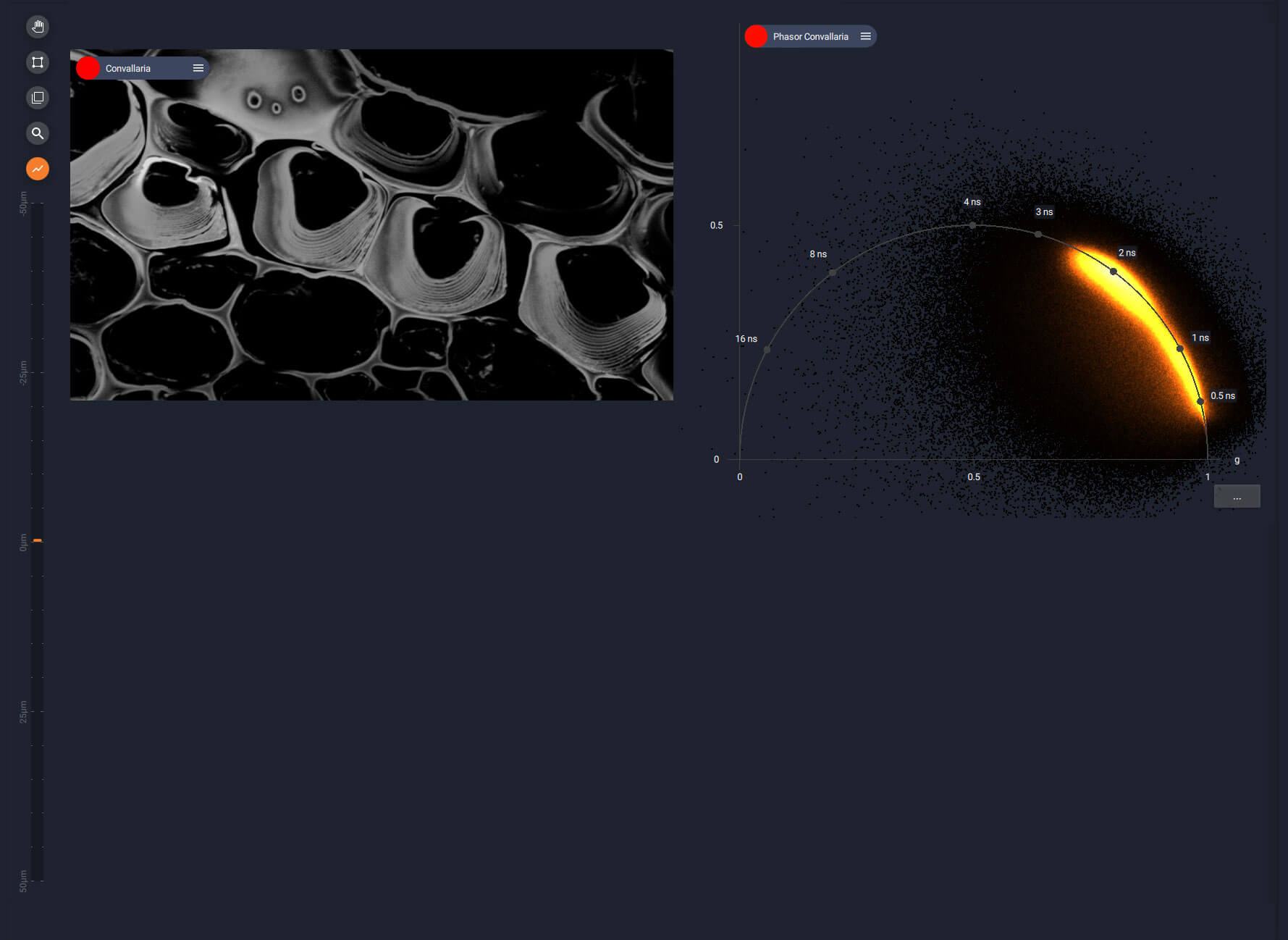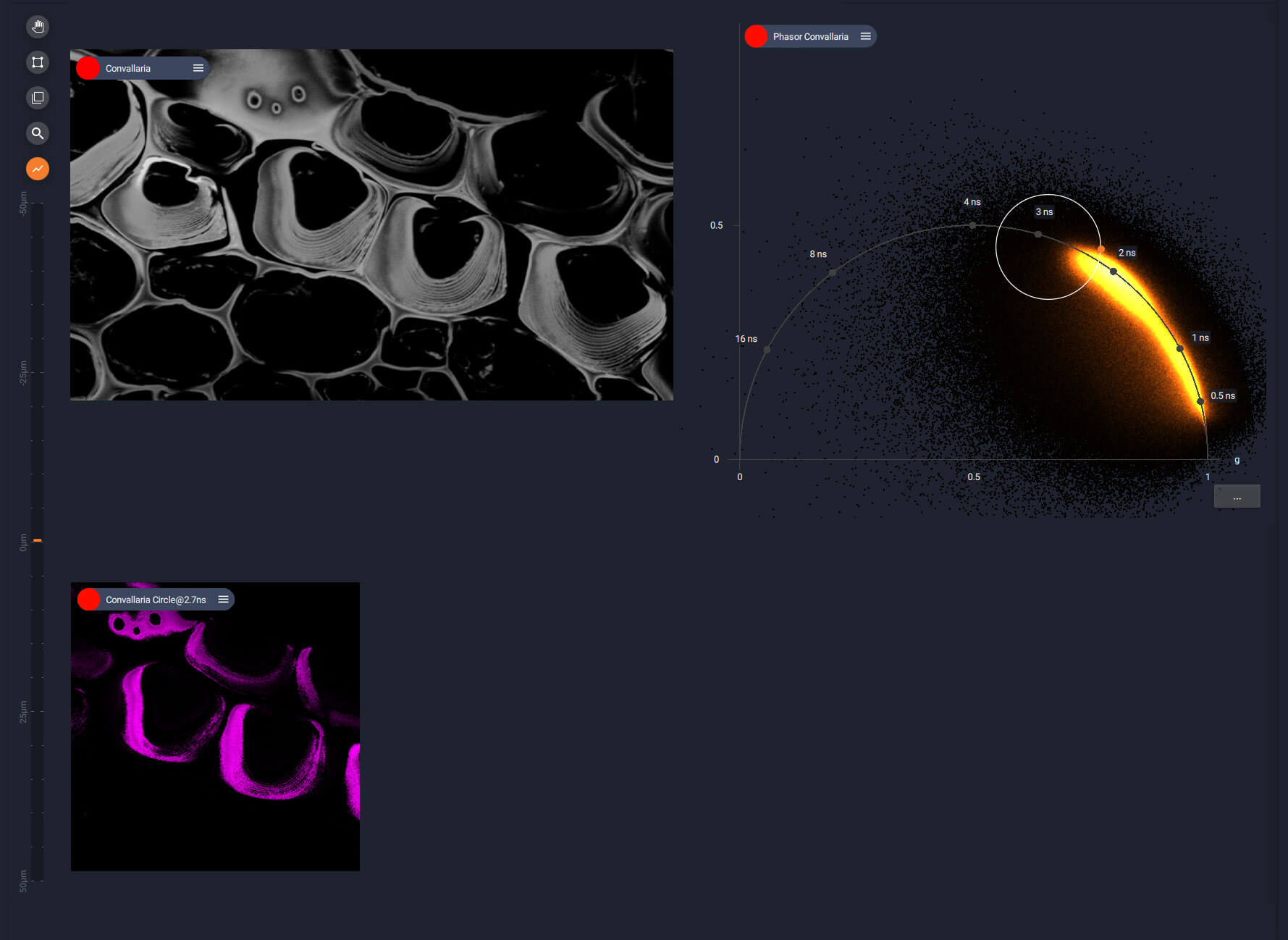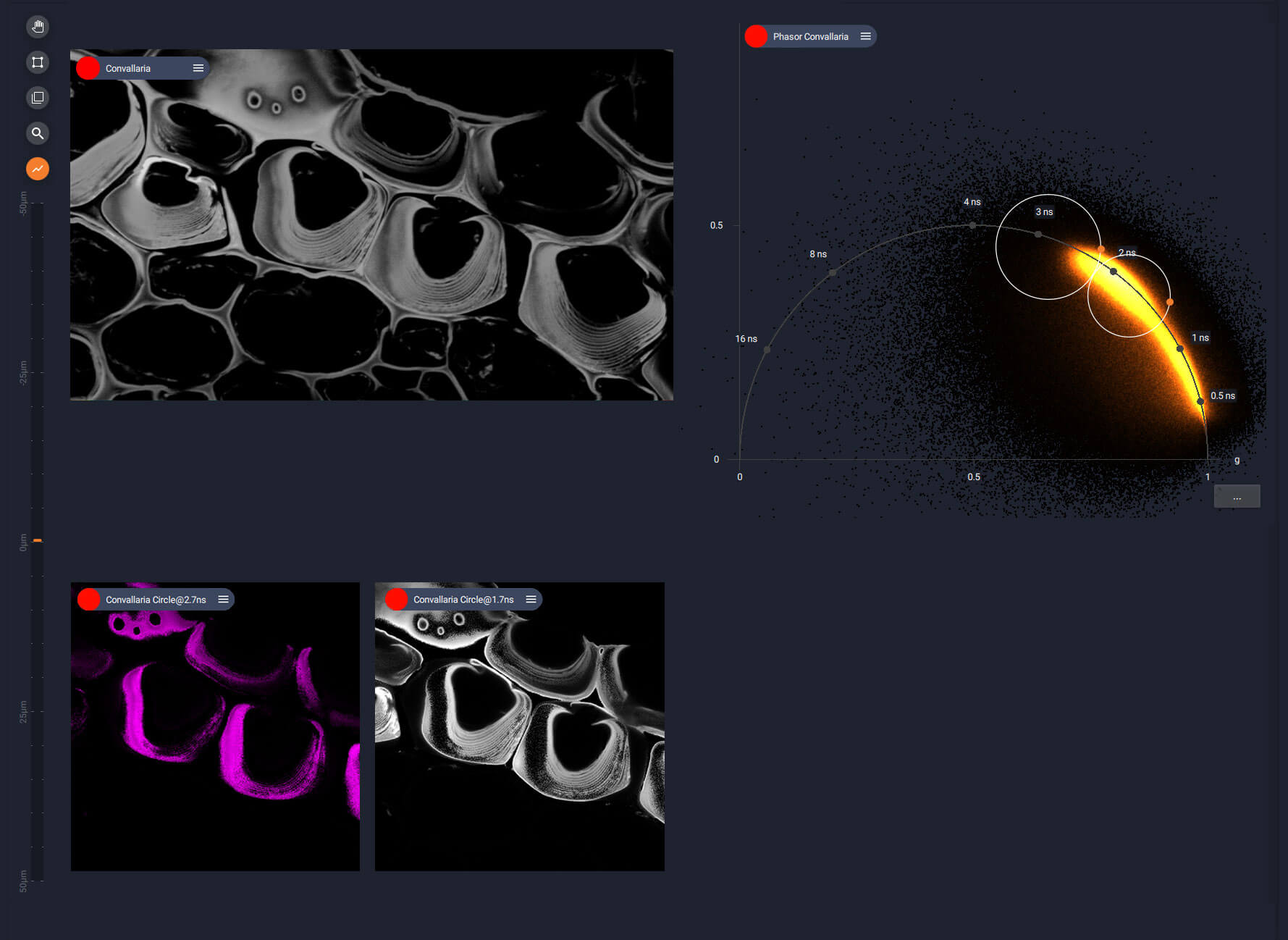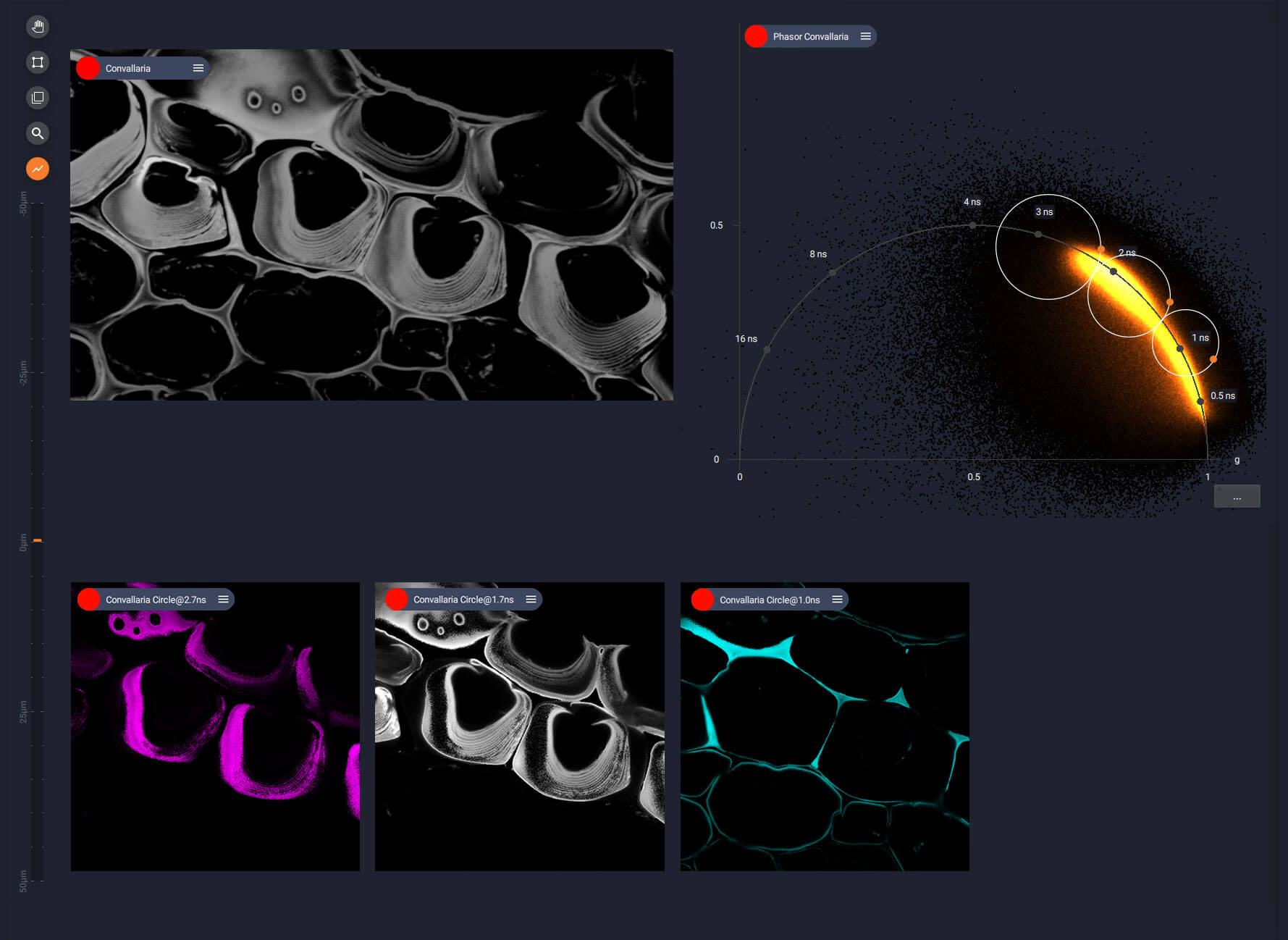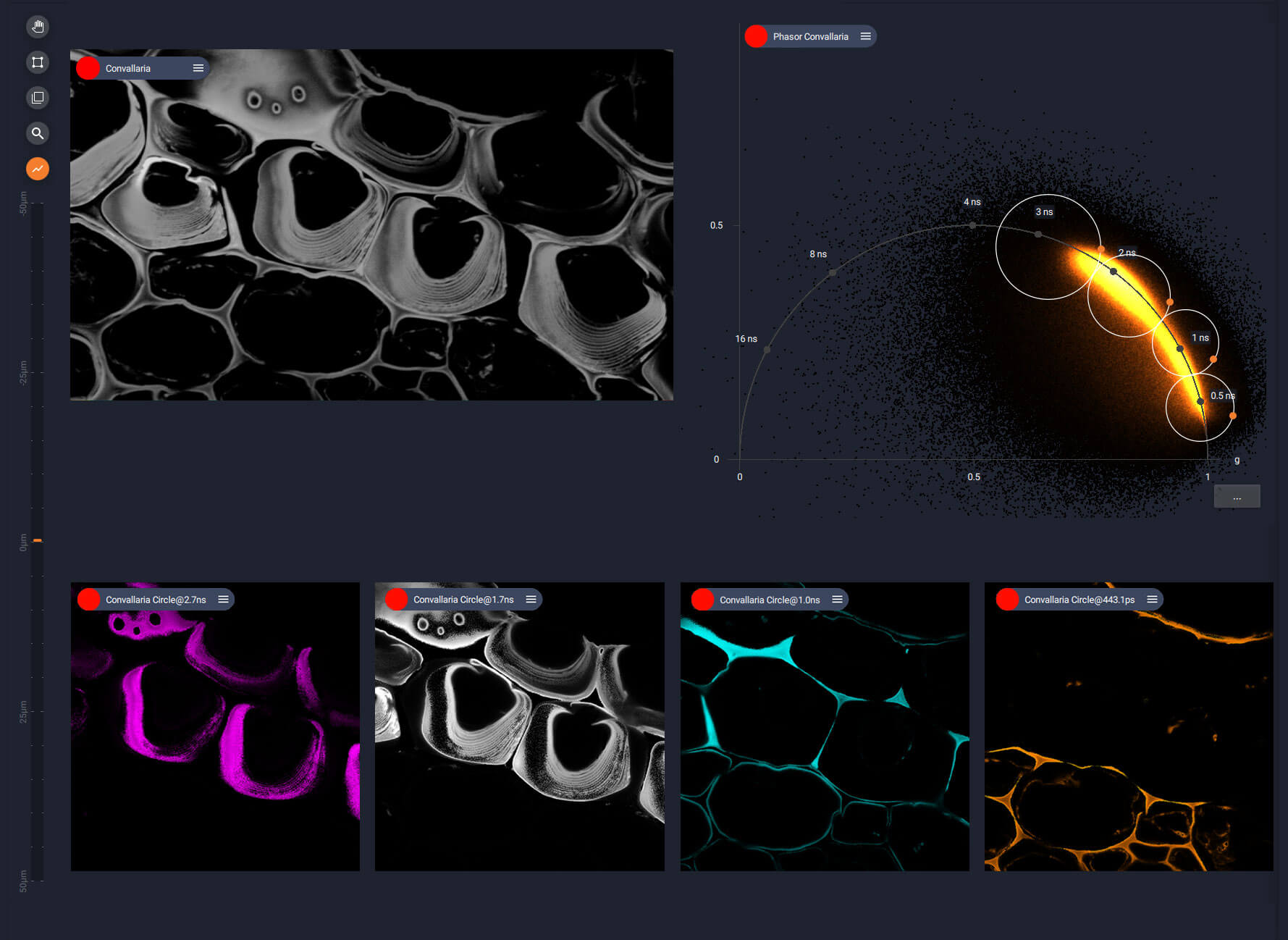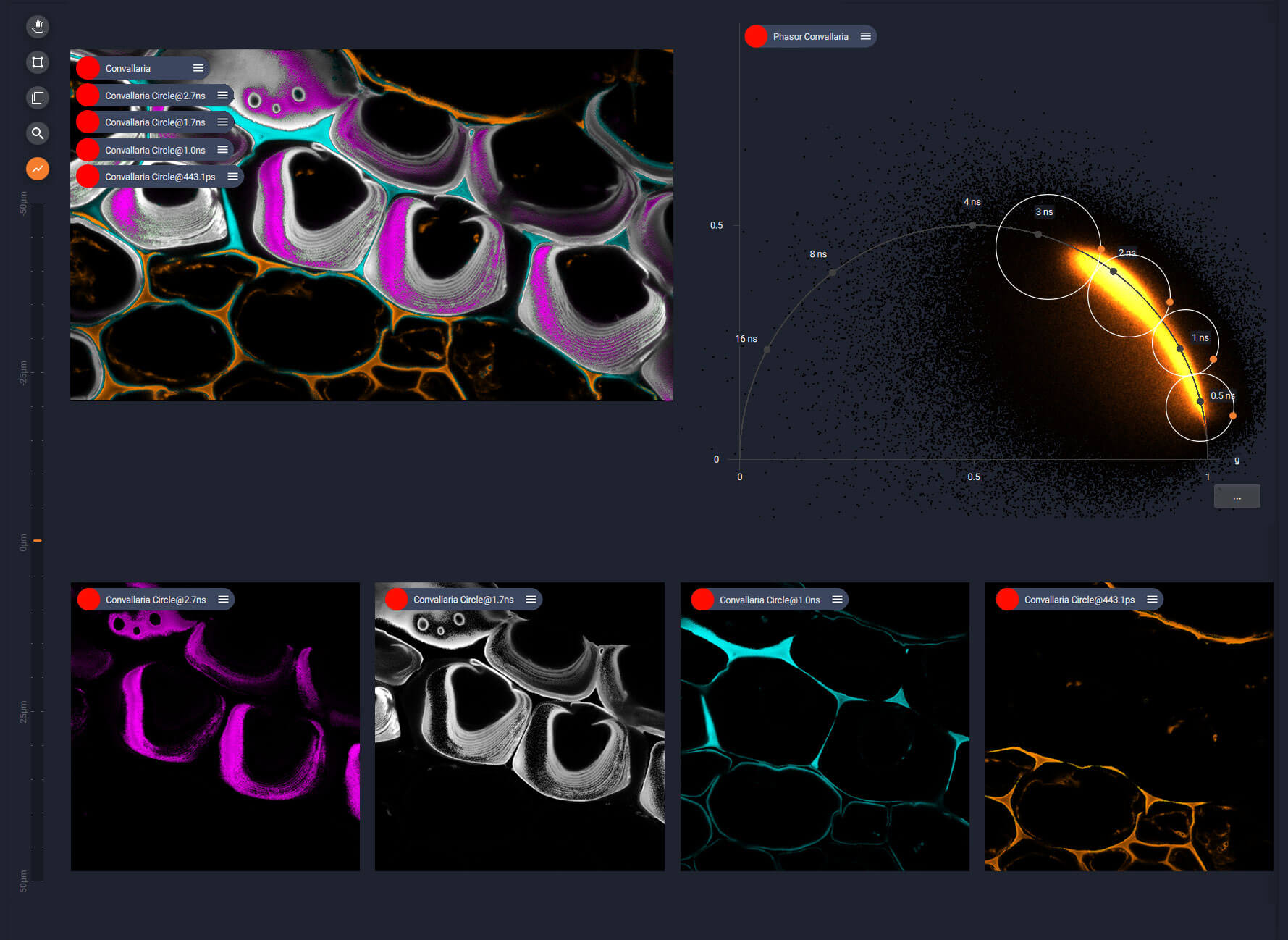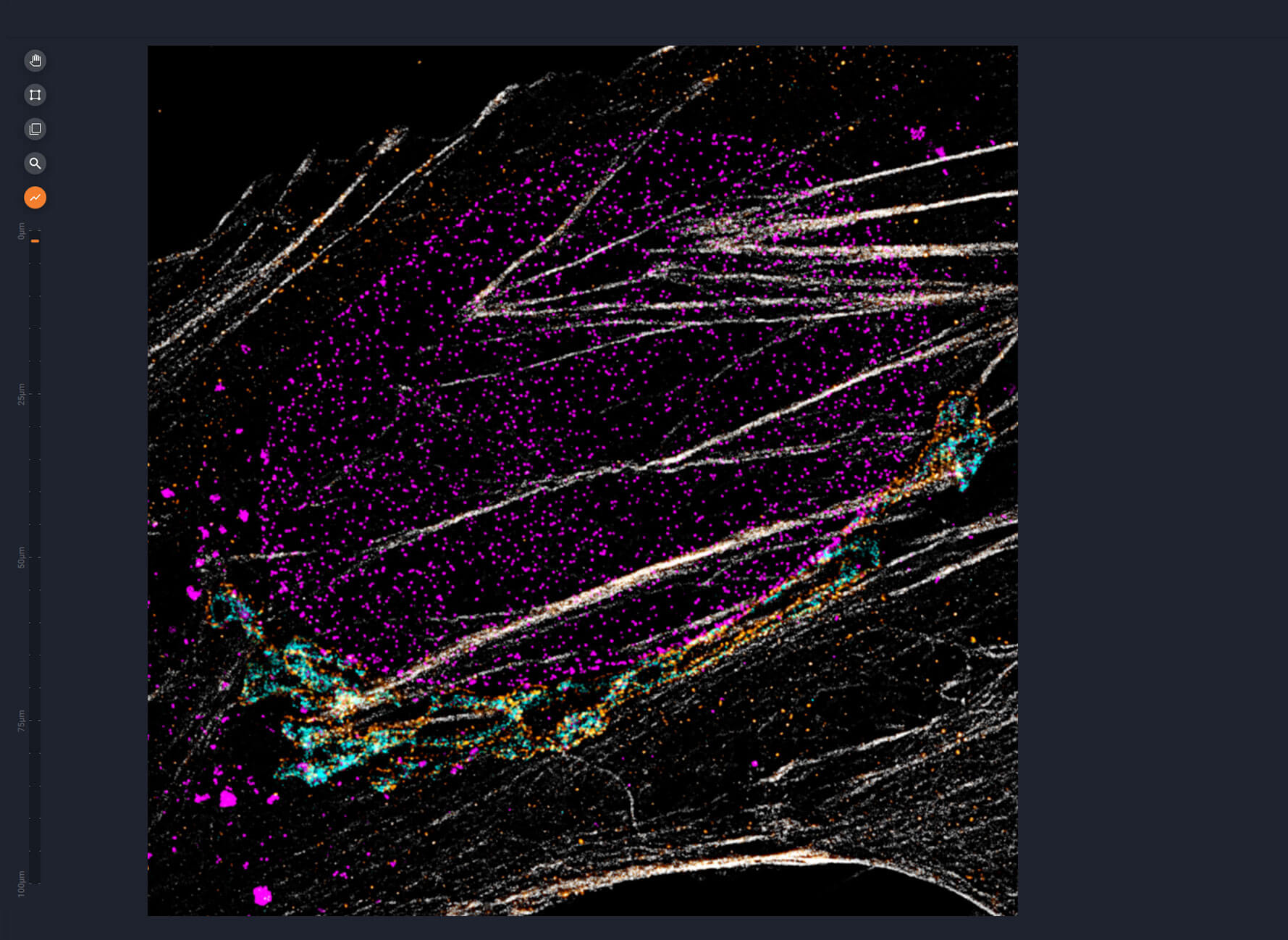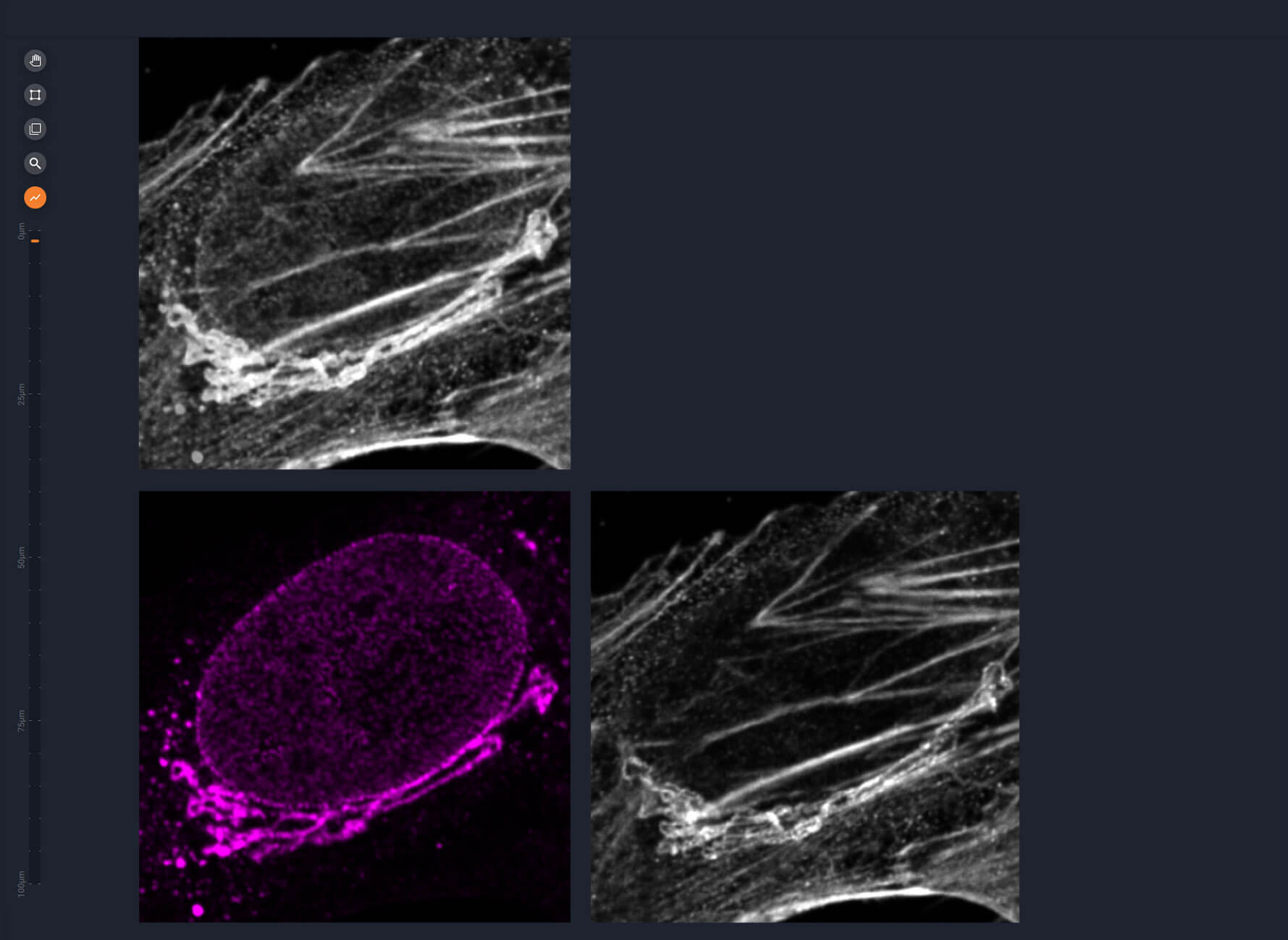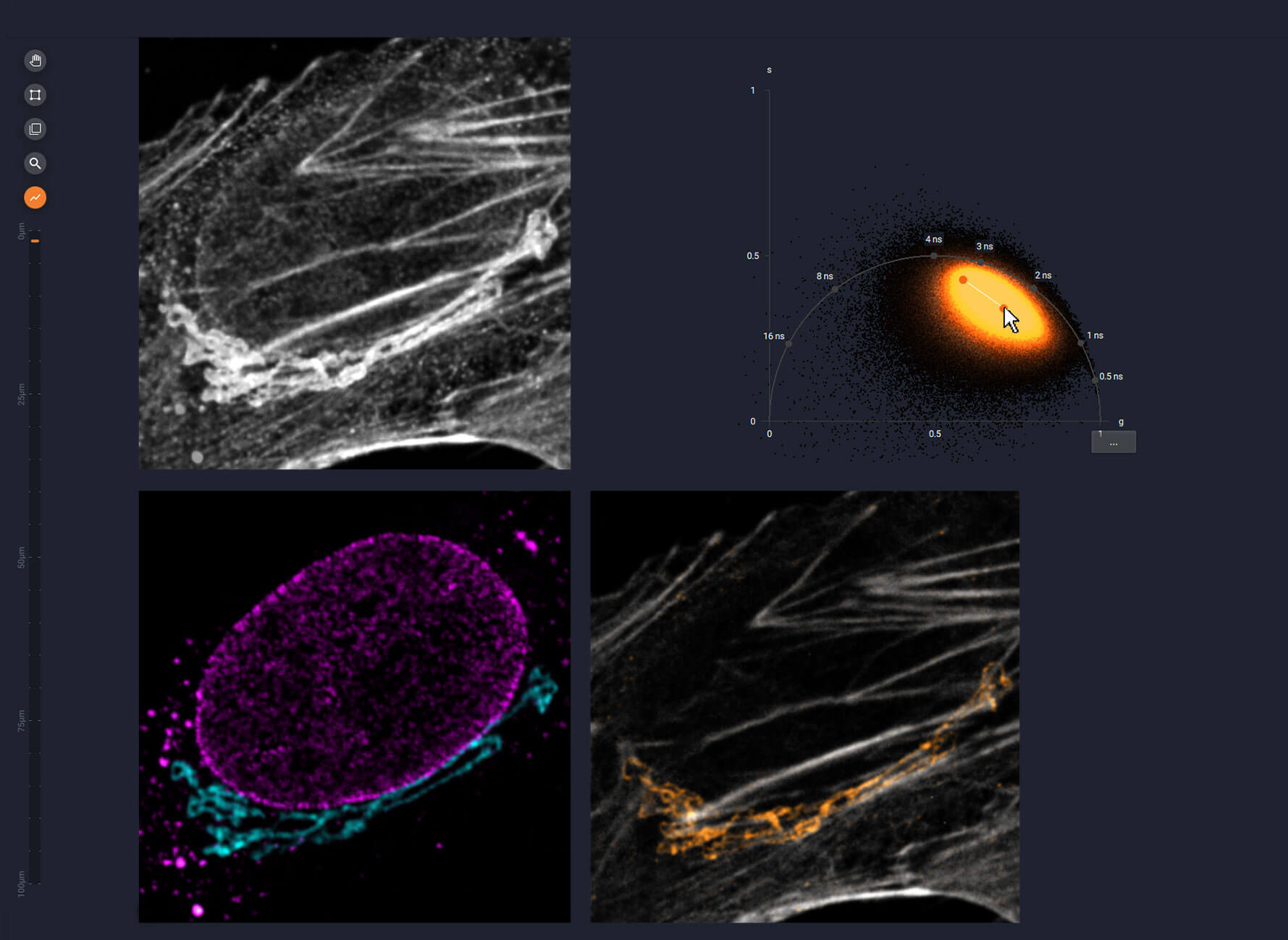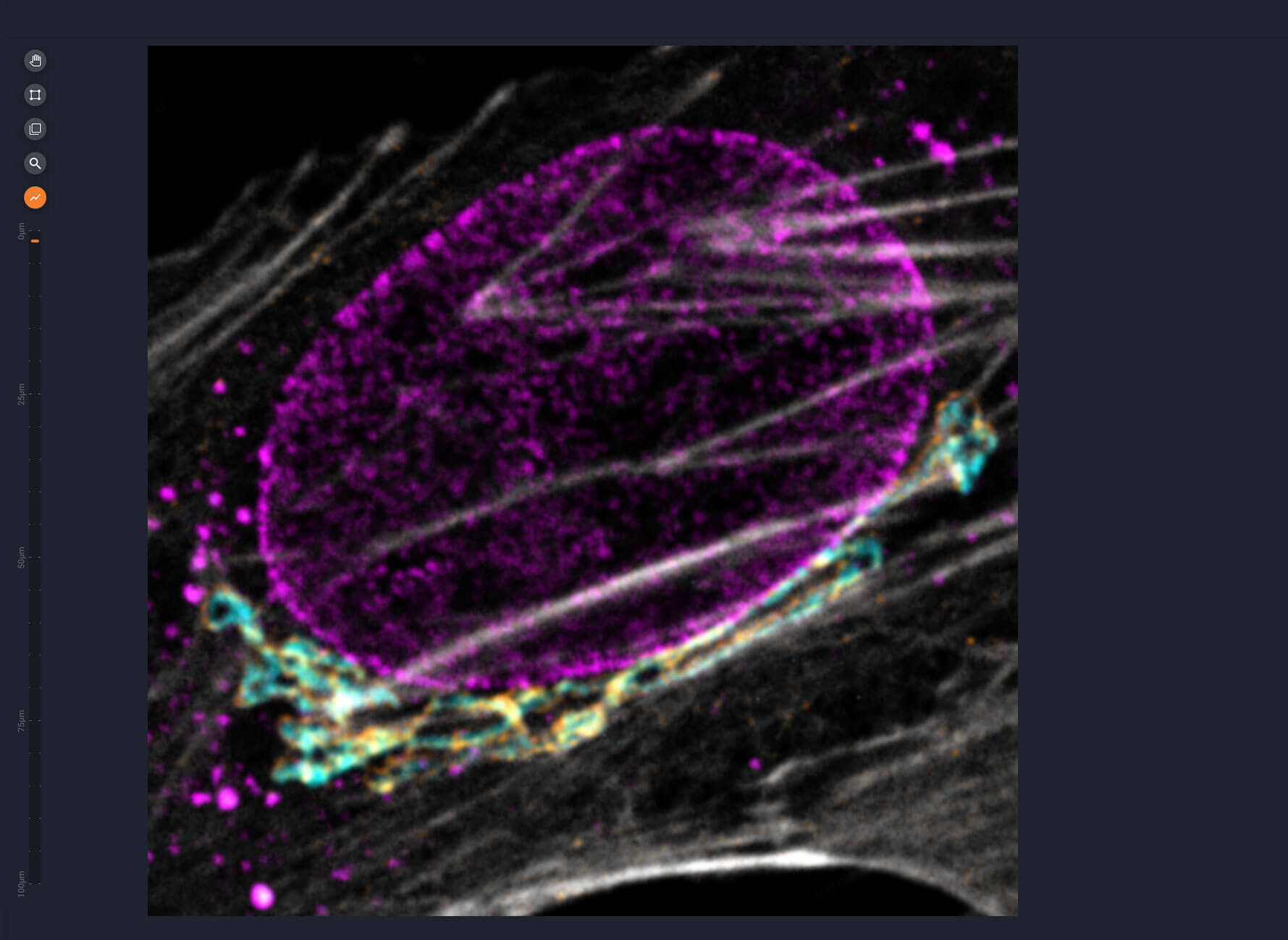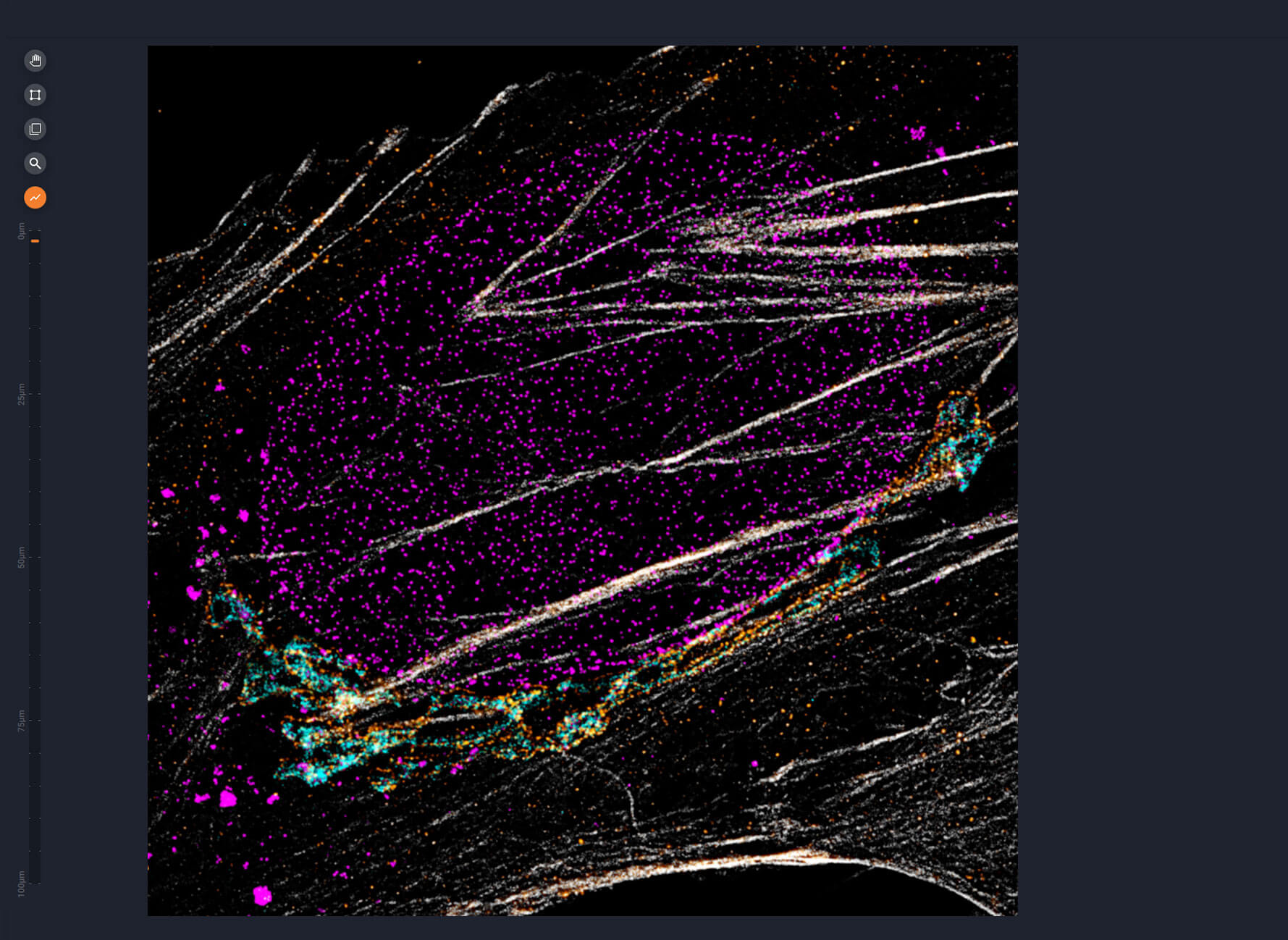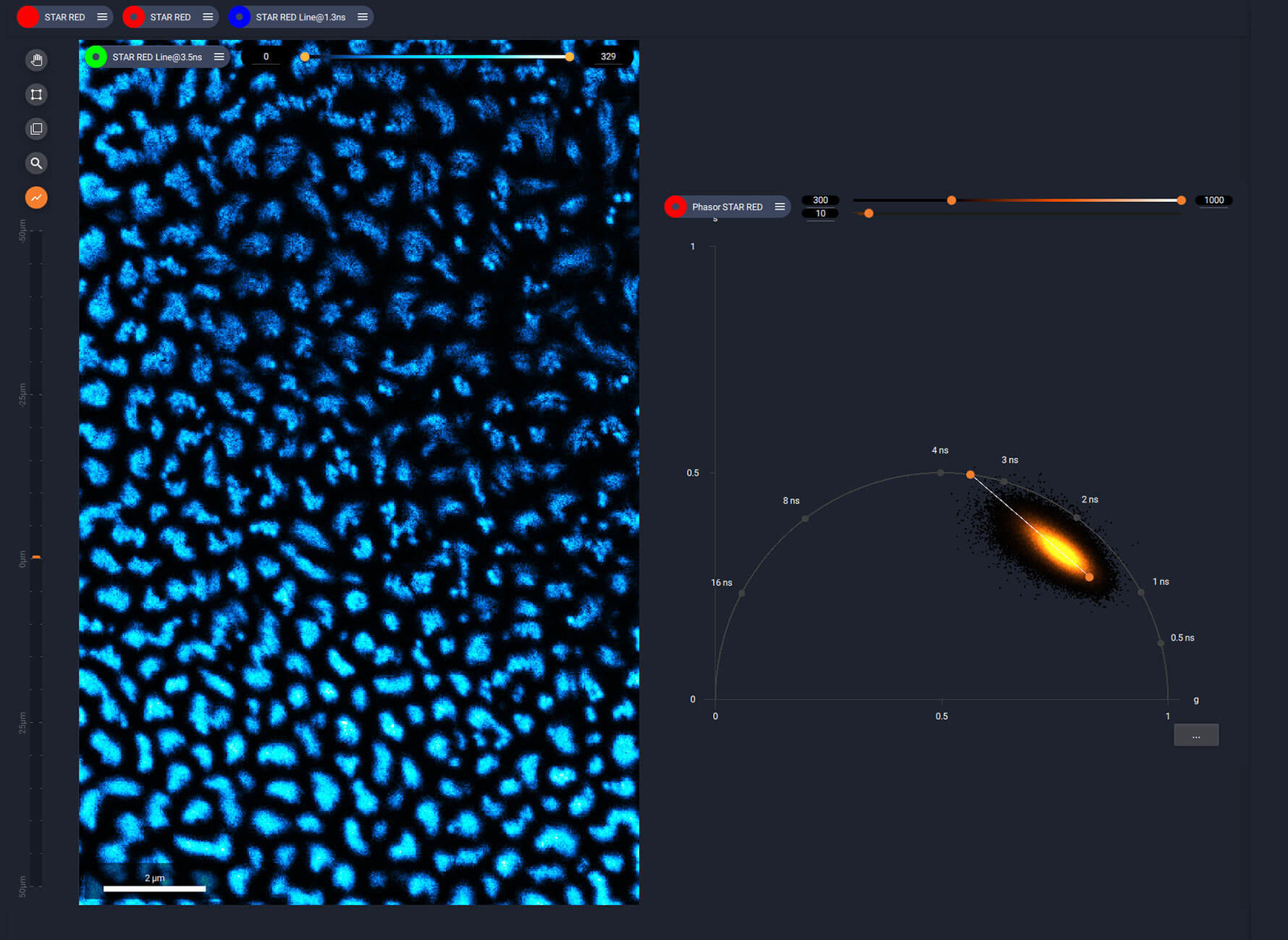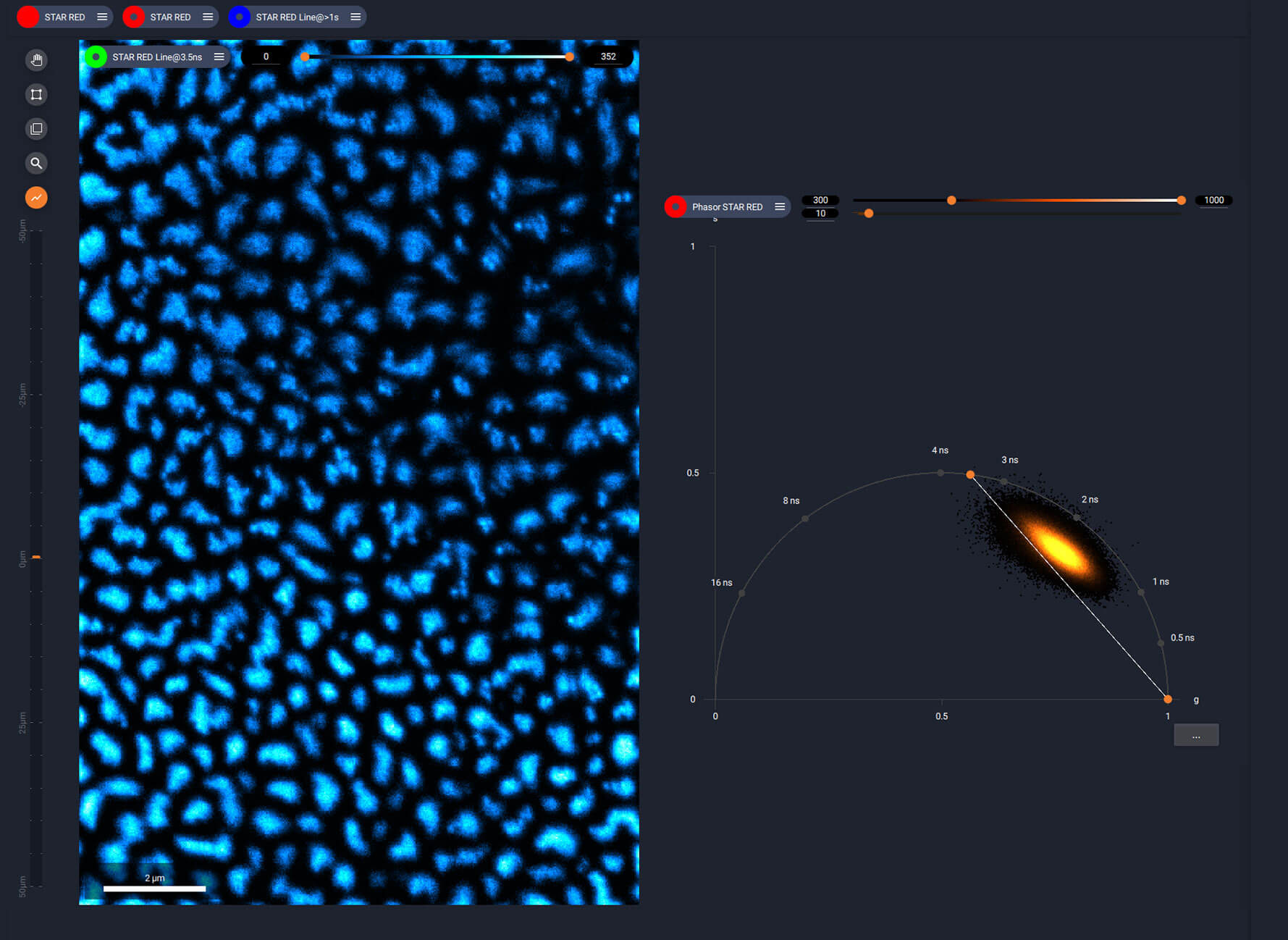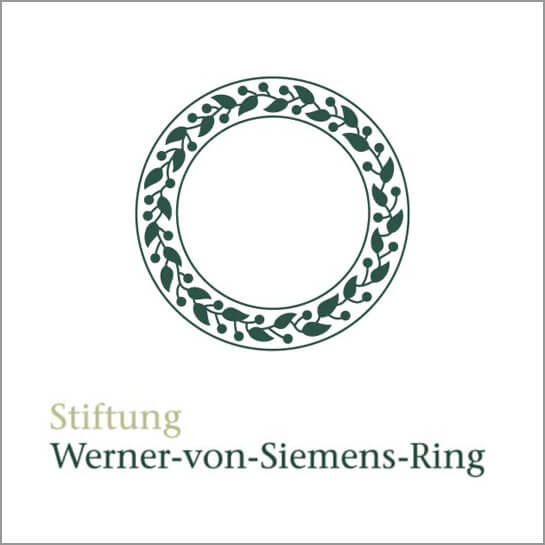TIMEBOW
Every fluorescence signal contains lifetime information that travels with the photons from the sample to the detector. TIMEBOW lifetime imaging elicits this information, allowing you to make the best use of it in multiple ways. In combination with our highly sensitive APDs and the groundbreaking MATRIX detector, you get the best out of every aspect of the signal – as easy as 1-2-3! With TIMEBOW, your research shines in perfect color.
gives time a color
TIMEBOW at a glance >MINFLUX Module
Single-digit nanometer resolution with the MINFLUX module for our MIRAVA POLYSCOPE
MATRIX Detector
Many eyes see more than one. The MATRIX detector drastically improves signal-to-background ratio, resolution, and dynamic range.
TIMEBOW Imaging
TIMEBOW lifetime imaging for stunning results at confocal and STED super-resolution.
FLEXPOSURE Illumination
Brings down the light dose on your sample and lables dramatically. Key ingredient for volume and live-cell superresolution.
RAYSHAPE Mirror
Dynamic aberration correction with a deformable mirror over about 200 µm z-range. 140 digital actuators adjust the mirror surface within milliseconds.
Custom Solutions
We offer solutions for even the most challenging applications. Everything that can be done, we will do.
TIMEBOW
lifetime data evaluation at its best
Why limit yourself to just intensity and color? With TIMEBOW, you unlock an entirely new dimension of information: fluorescence lifetime. Make the most out of every photon you can get and gain insights into your sample that are invisible to traditional imaging.
Learn about the cellular microenvironment by monitoring changes in fluorescent lifetime. See subtle structural differences that are hidden in standard images. Exclude background signal or unwanted fluorescence based on lifetime signatures. Expand your imaging options by separating fluorophores emitting in the same spectral channel.
You may also use lifetime information to increase resolution by combining it with STED: TIMEBOW STED exploits the spatial information encoded in fluorescence lifetime to push resolution and contrast – for clearer, more detailed images.
TIMEBOW lifetime imaging is available both on MIRAVA POLYSCOPE and on STEDYCON 2. The direct integration into our LiGHTBOX and STEDYCON smart control software allows you to work with the data seamlessly.
Intuitive LiGHTBOX software with TIMEBOW
Picture 1
Color-coded fluorescence lifetime in an autofluorescent sample: plant stem cross section of Convallaria.
Intuitive LiGHTBOX software with TIMEBOW
Picture 2
The grey intensity image without lifetime data. Image quality is already improved by removing the background with MATRIX detection.
Intuitive LiGHTBOX software with TIMEBOW
Picture 3
One click opens the phasor plot and gives access to lifetime data.
Intuitive LiGHTBOX software with TIMEBOW
Picture4
A color-coded lifetime image is just another click away.
TIMEBOW
fun at work
To give you the best way to work with lifetime data, TIMEBOW uses phasor analysis. This turns the temporal dynamics of fluorescence decay into a convenient plot which directly visualizes different lifetime populations. The plot is interactive and gives you the tools you need to process lifetime information within seconds.
Easy separation of structures thanks to TIMEBOW
Picture 1
Lifetime separated into four species in a plant stem cross section of Convallaria.
Easy separation of structures thanks to TIMEBOW
Picture 2
Image quality is improved by removing the background with MATRIX detection. TIMEBOW gives you the interactive phasor plot to work with.
Easy separation of structures thanks to TIMEBOW
Picture 3
By simply drawing circular filters in the phasor plot, different species can be defined. Starting with the longest lifetimes …
Easy separation of structures thanks to TIMEBOW
Picture 4
… and then defining more species by adding more circles …
Easy separation of structures thanks to TIMEBOW
Picture 5
… and more circles … and more species …
Easy separation of structures thanks to TIMEBOW
Picture 6
… until everything is separated.
Easy separation of structures thanks to TIMEBOW
Picture 7
Finally, these four species are combined, showing a clearly distinct distribution in the sample.
TIMEBOW
you will simply love it
Our super-resolution imaging already produces stunning images along all spatial dimensions. Now we do the same with the dimension of time. Grey images turn into colorful sample portraits as color-coded lifetime plots reveal unseen structures. Fluorophores in the same spectral channel suddenly are clearly separated, giving you more channels and more flexibility than ever before.
4 colors with one STED laser? Yes of course with TIMEBOW!
Picture 1
A super-resolved four-color image recorded with only one STED laser.
4 colors with one STED laser? Yes of course with TIMEBOW!
Picture 2
Traditionally, one of the rules of labelling was: dyes with similar excitation spectra cannot be combined in one sample. But here, this is exactly what we do!
4 colors with one STED laser? Yes of course with TIMEBOW!
Picture 3
TIMEBOW allows for straightforward separation by lifetime, simply by drawing a line in the phasor plot. Now the targets can be distinguished, due to their difference in lifetime.
4 colors with one STED laser? Yes of course with TIMEBOW!
Picture 4
All separated layers are combined to create a four-color image, which already looks stunning in confocal …
4 colors with one STED laser? Yes of course with TIMEBOW!
Picture 5
… and WOW with super-resolution.
TIMEBOW on STEDYCON 2
performance in a shoebox
Lifetime imaging on STEDYCON 2 is powered by PicoQuant’s established MultiHarp 150 hardware. Fully integrated into the STEDYCON smart control software, command is seamless and intuitive with no need for external tools or expertise.
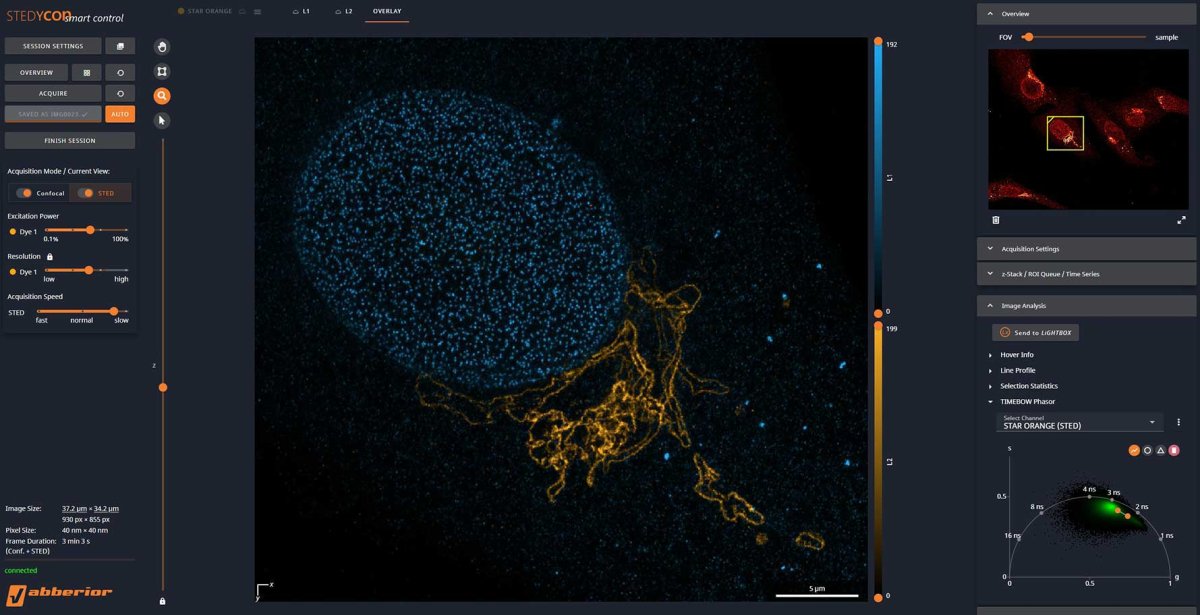
The interactive phasor plot assigns the image pixels to distinct populations according to their fluorescence lifetime. These populations can be unmixed into different lifetime channels.
Alternatively, you may export the lifetime data and work with it in third-party software like PicoQuant SymphoTime.
TIMEBOW + MATRIX
a perfect match only from abberior
Of course, TIMEBOW can be combined with our MATRIX array detector. This combination is even more than the sum of its parts. It brings you: higher signal-to-background ratio, better resolution and an impressive dynamic range. Every one of the more than twenty sensor elements of the MATRIX is used to simultaneously record both lifetime information and information about the origin of photons relative to the focal plane. With this data, we get rid of background better than a confocal pinhole ever could and we render stunning images not only richer in information, but also with exceptional contrast.
TIMEBOW is not only used for lifetime measurements, but can also be used to boost STED resolution. This is because fluorophores far out from the center of the donut experience higher STED powers and hence shorter lifetimes. In other words, the lifetime encodes additional spatial information. Using it effectively increases the resolution of the image.
Sharpening with TIMEBOW
Picture 1
Actin in microvilli, with the background removed using MATRIX. STED imaging has a unique property, whichTIMEBOW uses to further boost the resolution…
Sharpening with TIMEBOW
Picture 2
… by removing short-lived components that are not in the very center of the STED donut. This is done by simply dragging the separation line in the phasor plot.
Sample by Prof. Dorothee Günzel and Jörg Piontek (Charité).
Lifetime imaging
For each individual photon of the fluorescence signal we can measure not only where it came from, but also when. Since the latter depends on what type of molecule it is and also on its environment, there is tons of valuable information waiting for us. For example, we can use temporal dynamics to distinguish different fluorophores, different structures labeled with the same fluorophore, and we can even use it to boost resolution.
So what’s the catch? Well, in the quantum world all this information is hidden behind a layer of chance. Photons are simply not as predictable as we would like them to be, so we have to use probability and statistics to extract the information we want. Fortunately then, TIMEBOW takes care of all of this and we made it super easy and intuitive, so it fits seamlessly into your lab routine. And together with MATRIX it’s a winning combination.
Array detection
Seeing things from different viewpoints broadens your perspective. For example, we all know that three-dimensional human vision is a product of us having two eyes instead of one, the simplest form of an array.
With our MATRIX, we use more than twenty individual detectors to physically distinguish between out-of-focus signal and photons coming right from the focal plane. Just like your eyes know what’s close and what’s far away.
This allows us to remove background much better than a mechanical pinhole could, and it significantly improves contrast, especially in thick samples. And together with TIMEBOW it’s a winning combination, too.
- FLIM, fully integrated
- Turn temporal dynamics into color-coded lifetime images
- Super-resolved four-color images with only one STED laser
- Boost confocal and STED resolution
- On MIRAVA POLYSCOPE, together with MATRIX: higher signal-to-background ratio, better resolution and impressive dynamic range – only available from abberior







